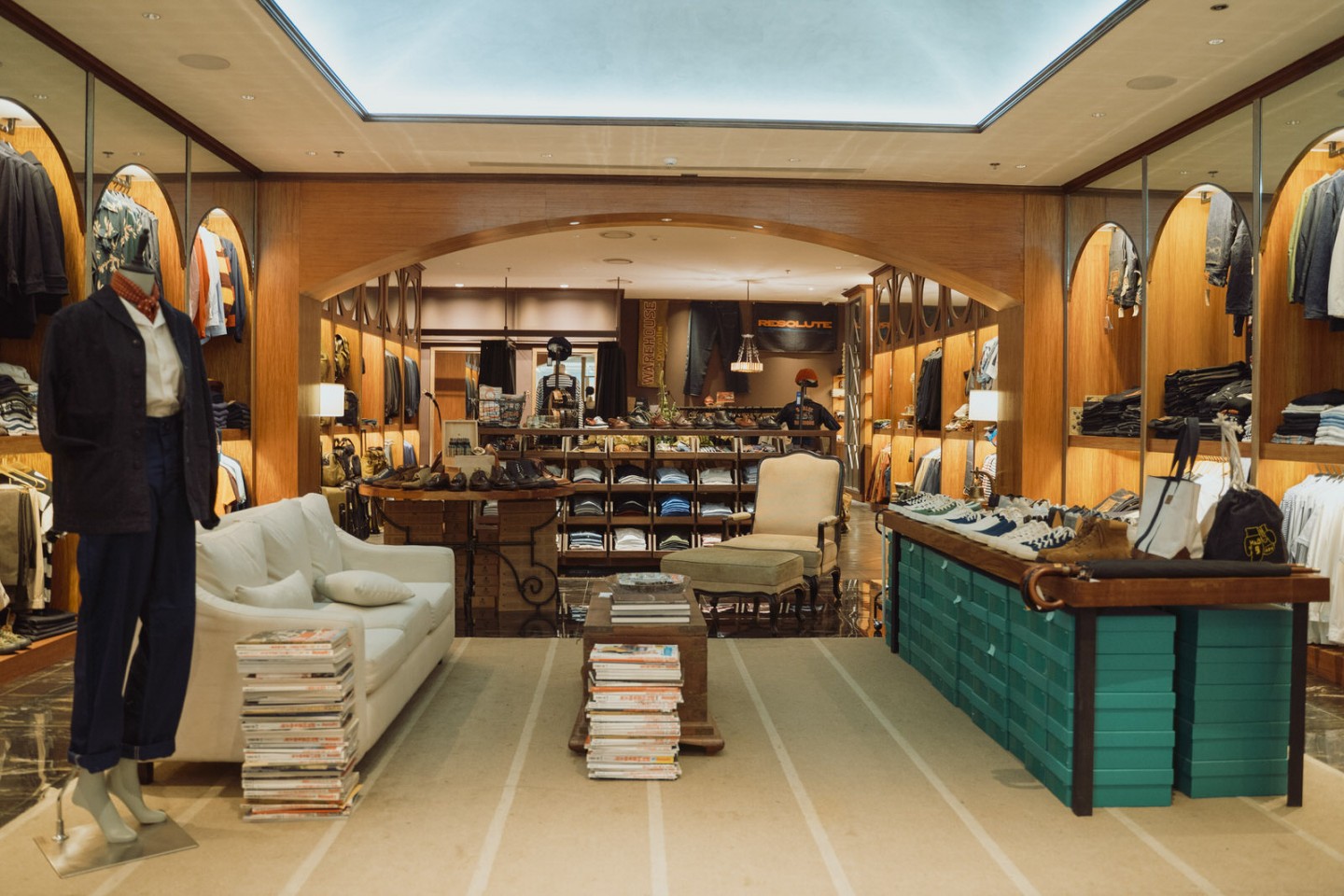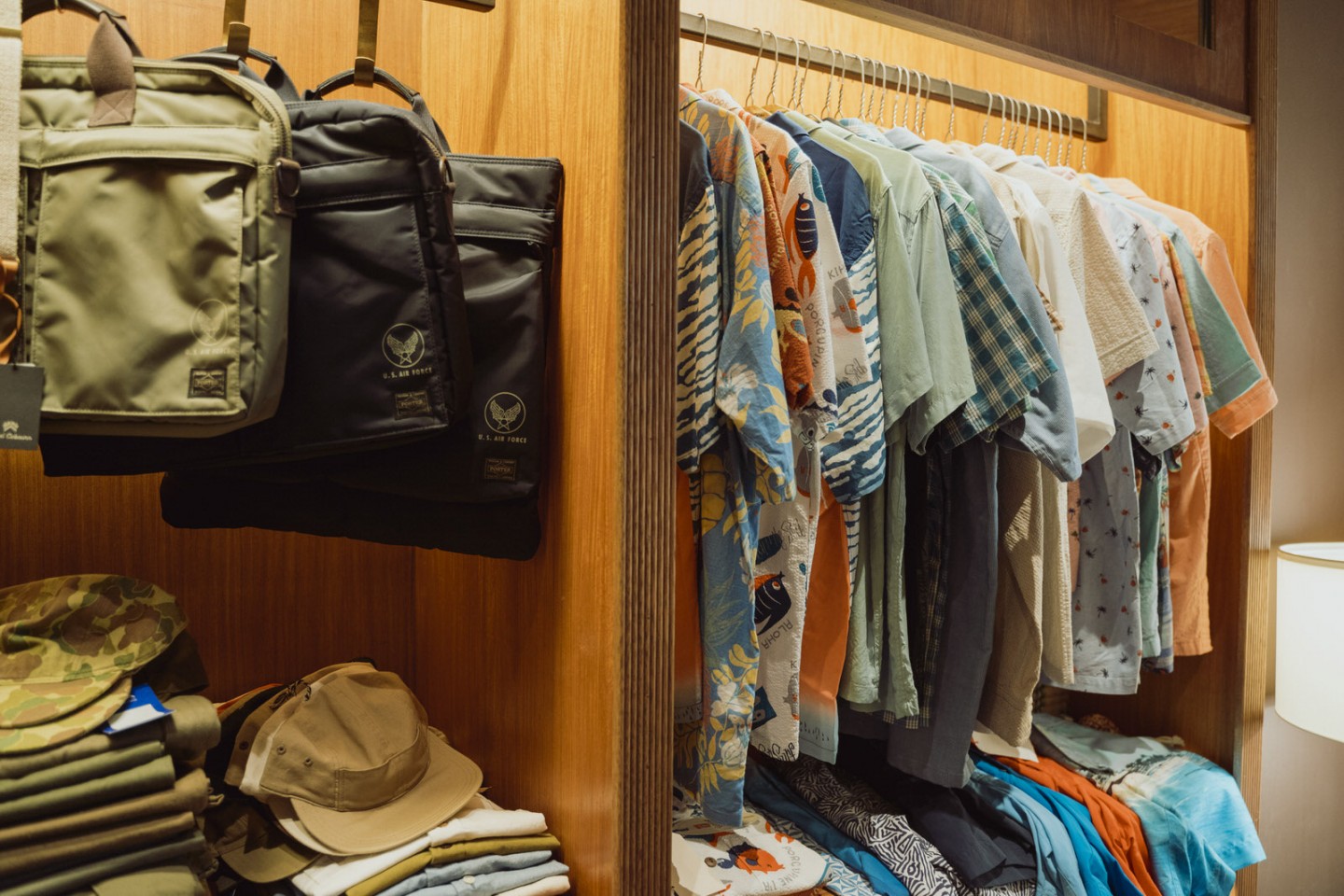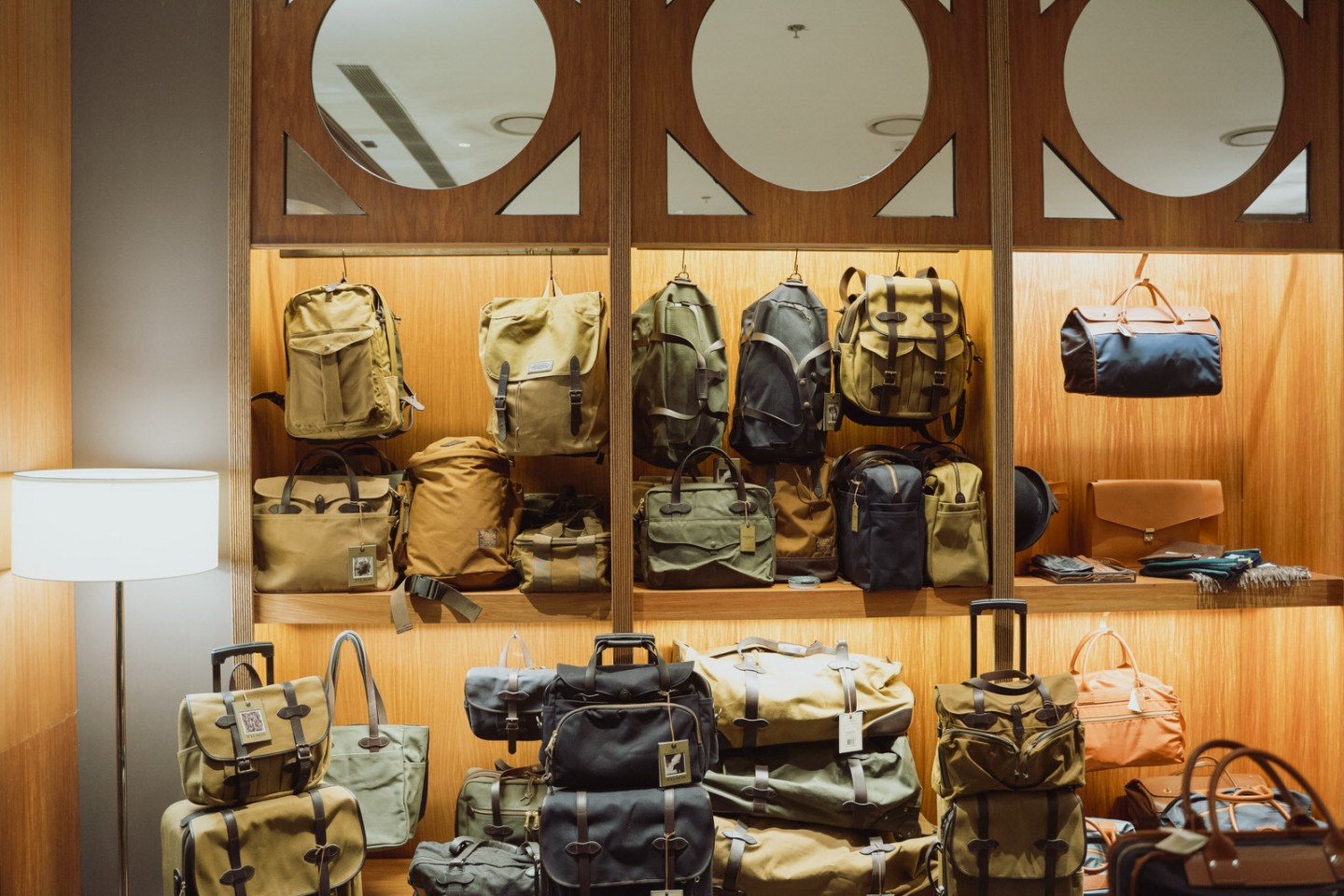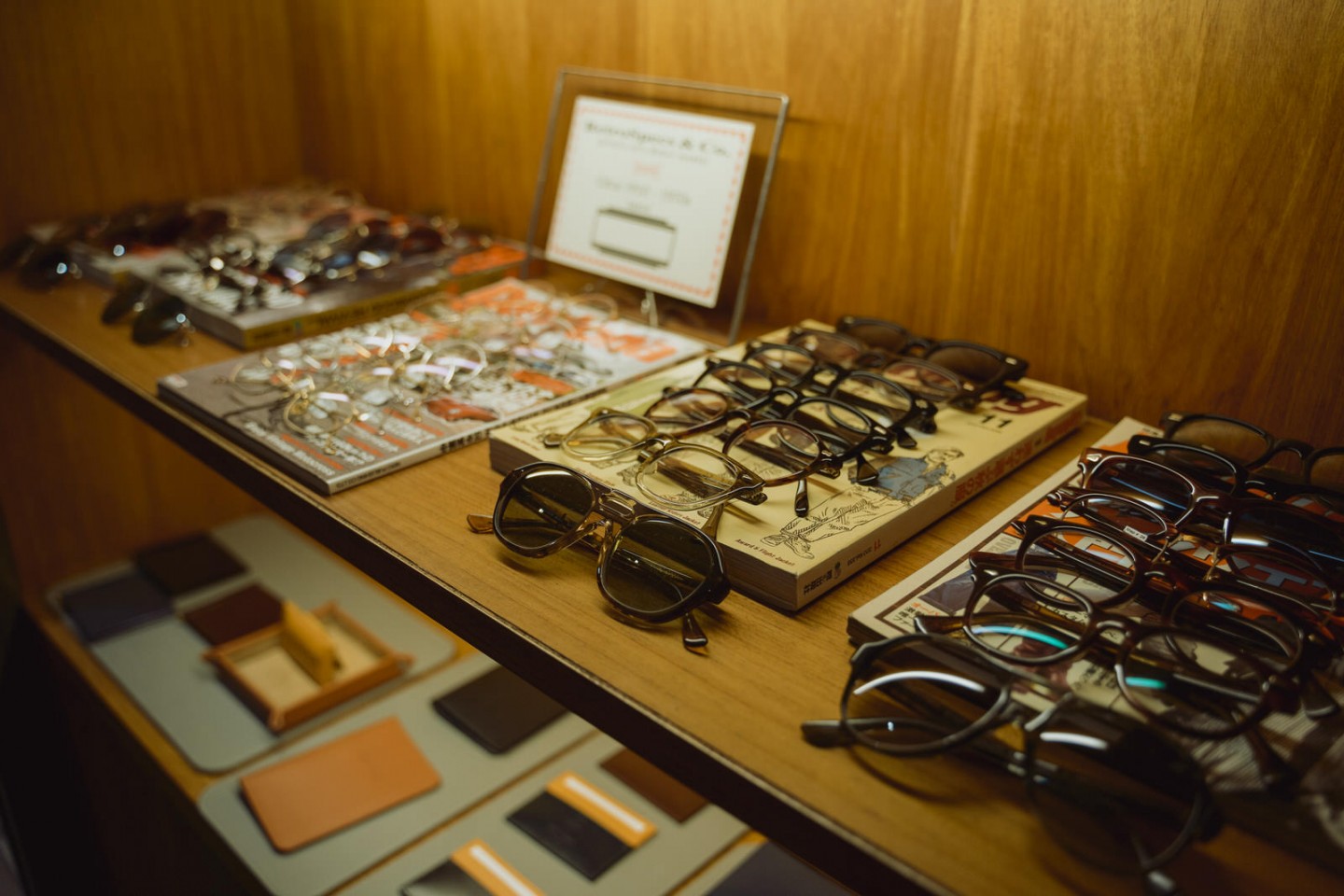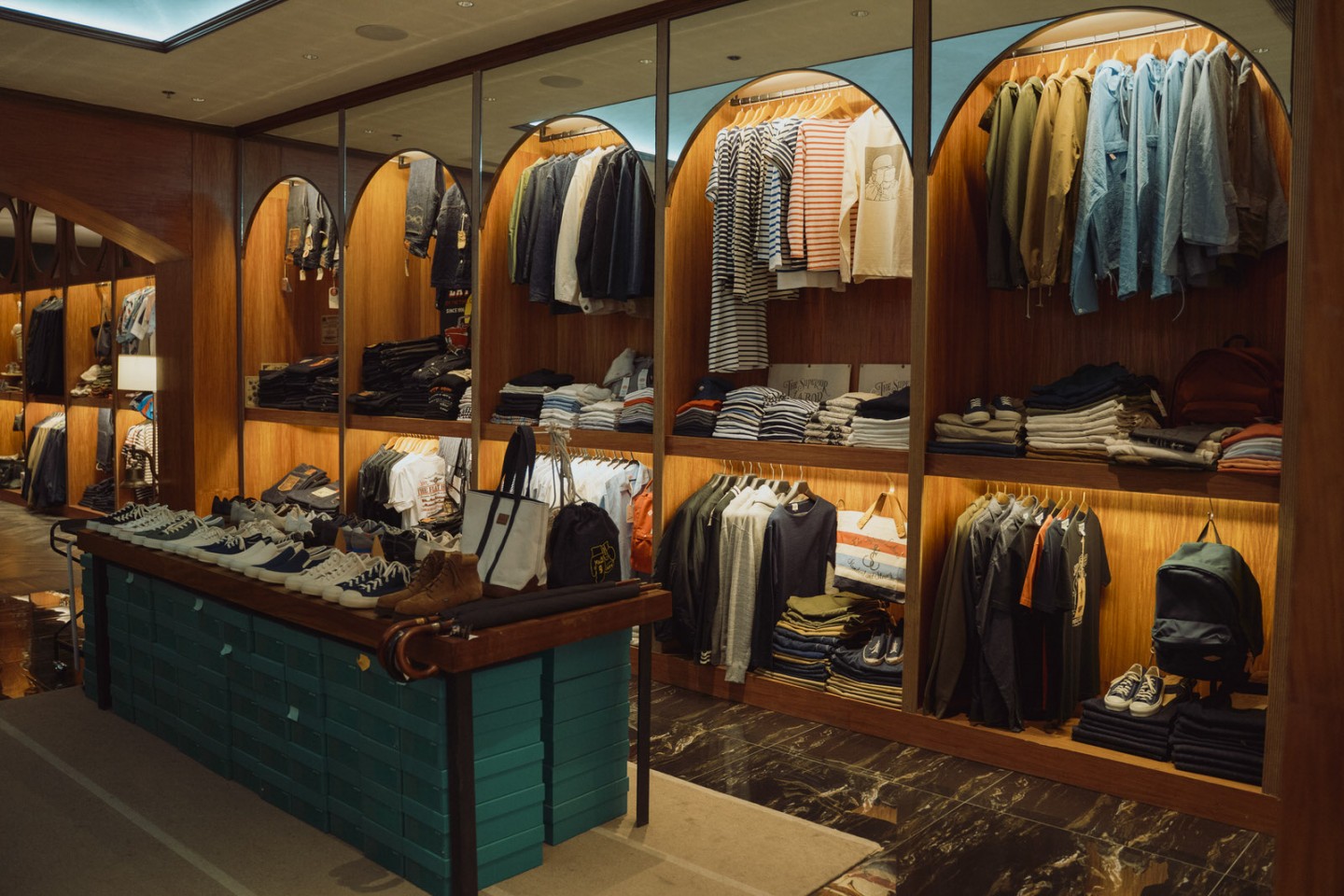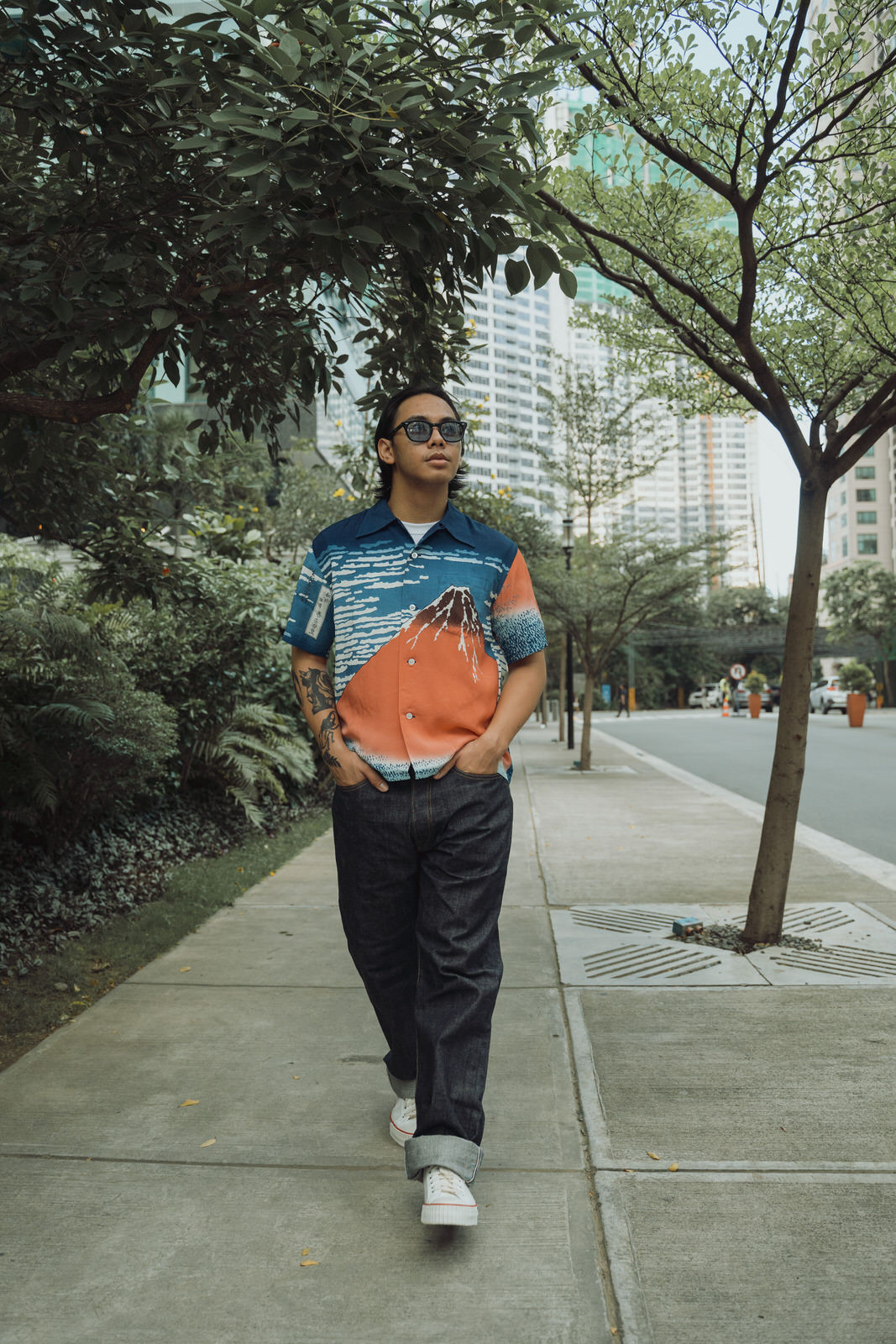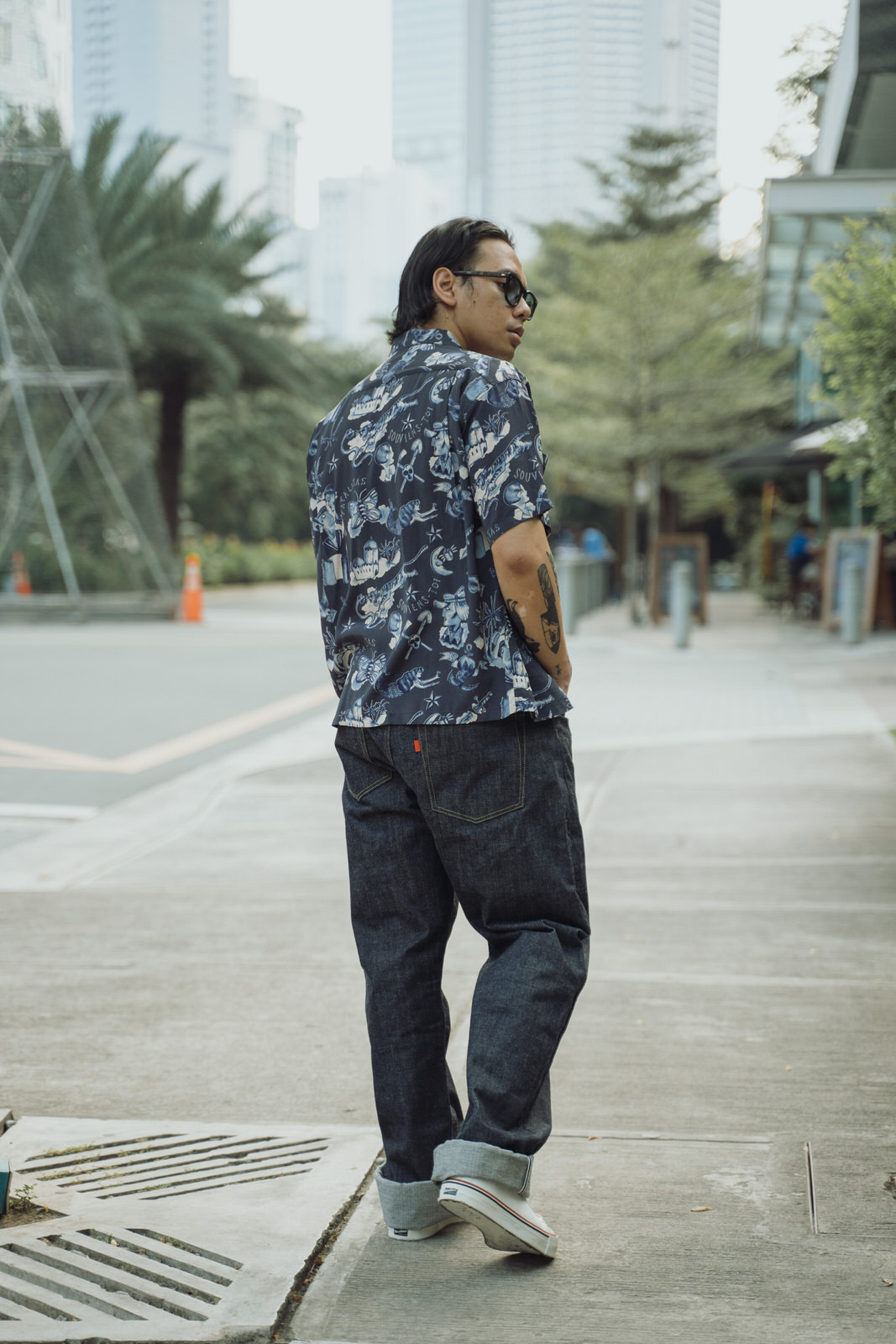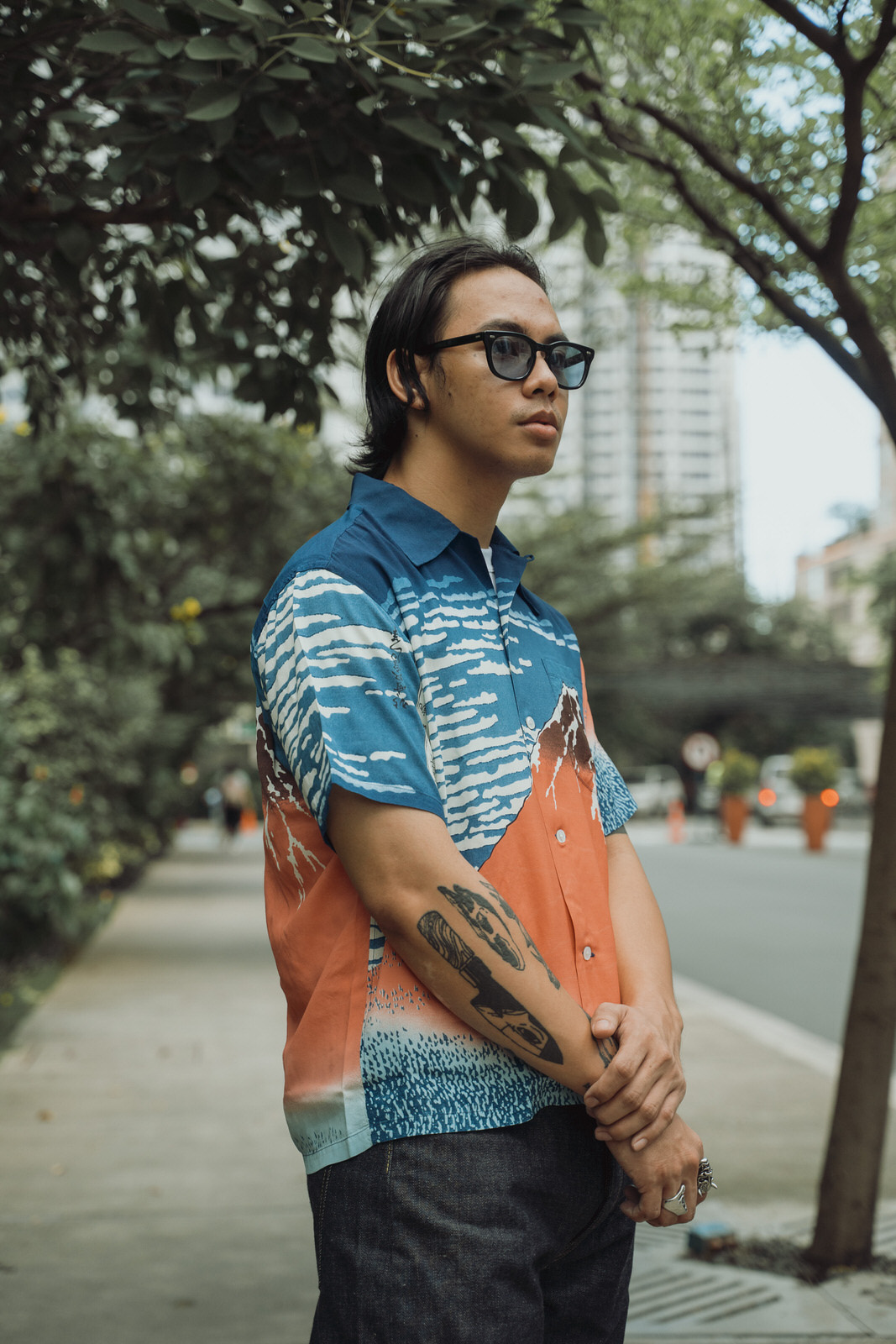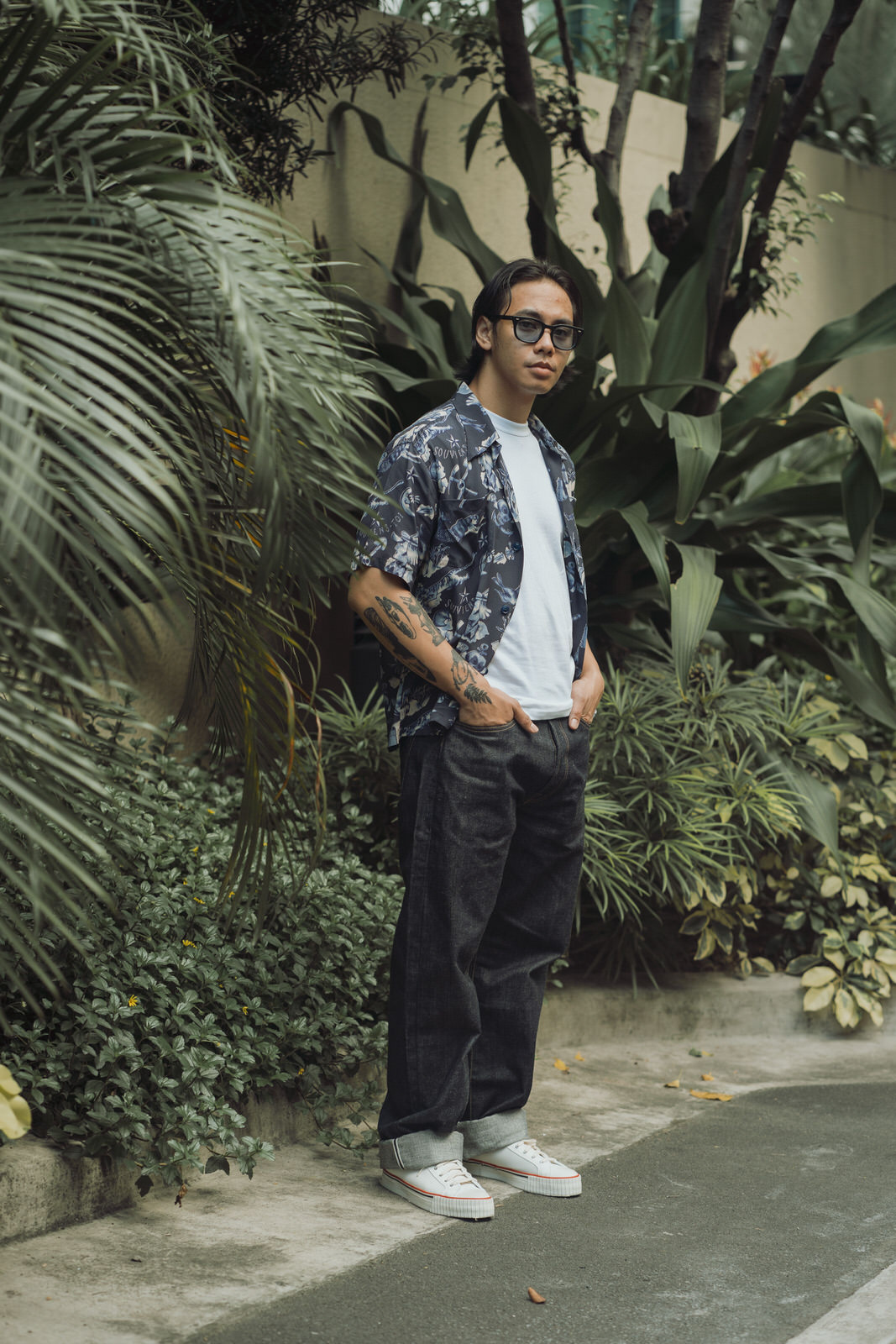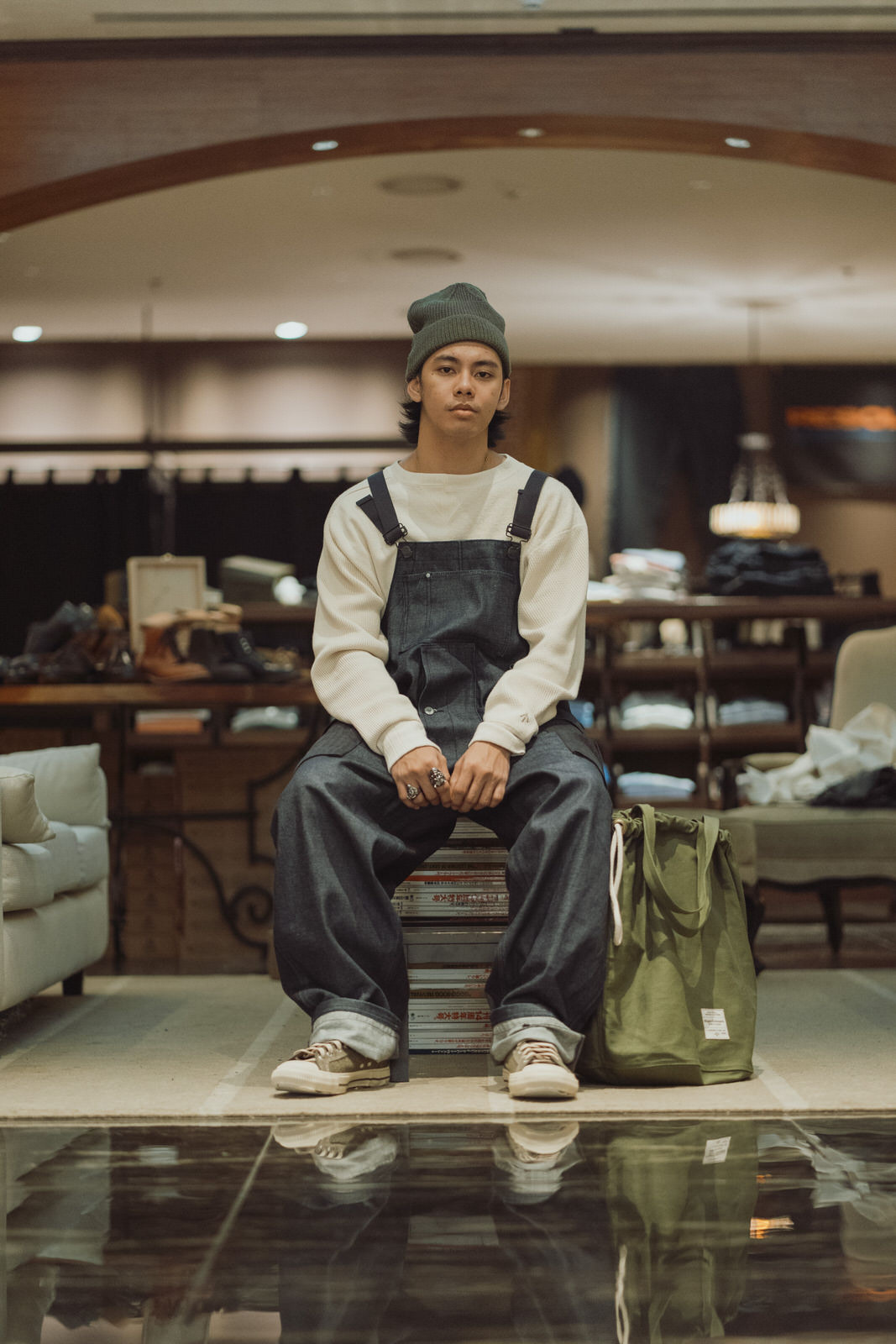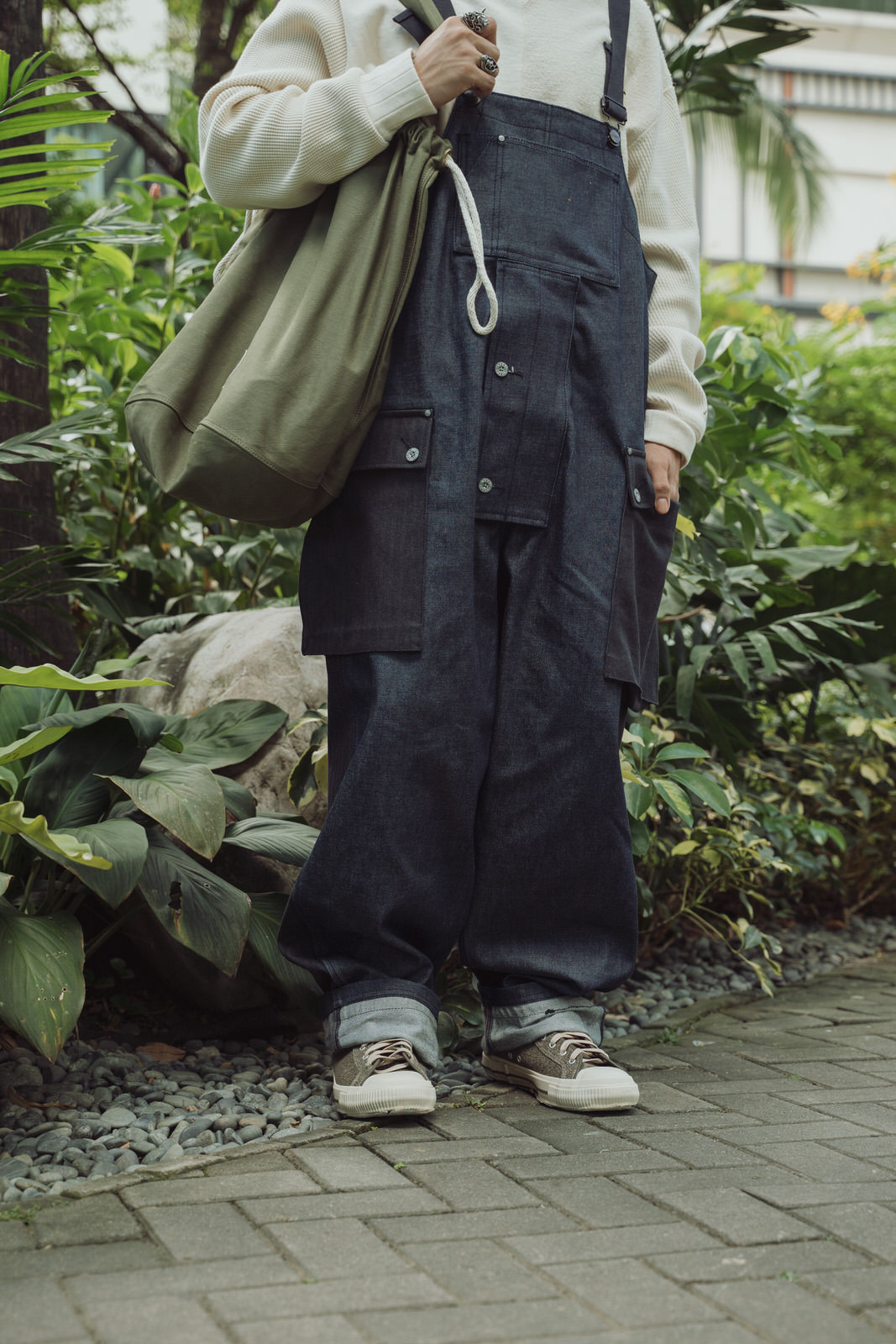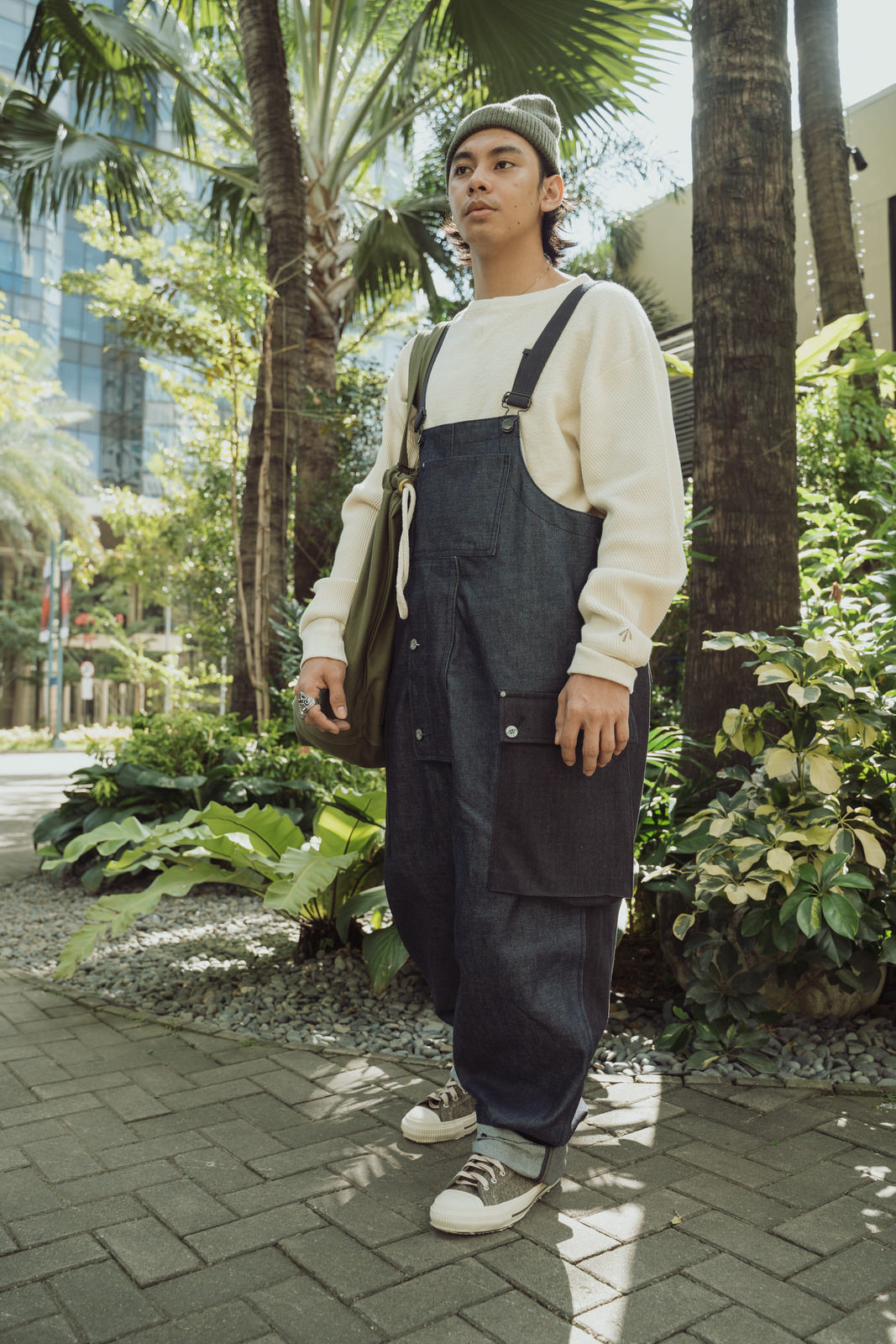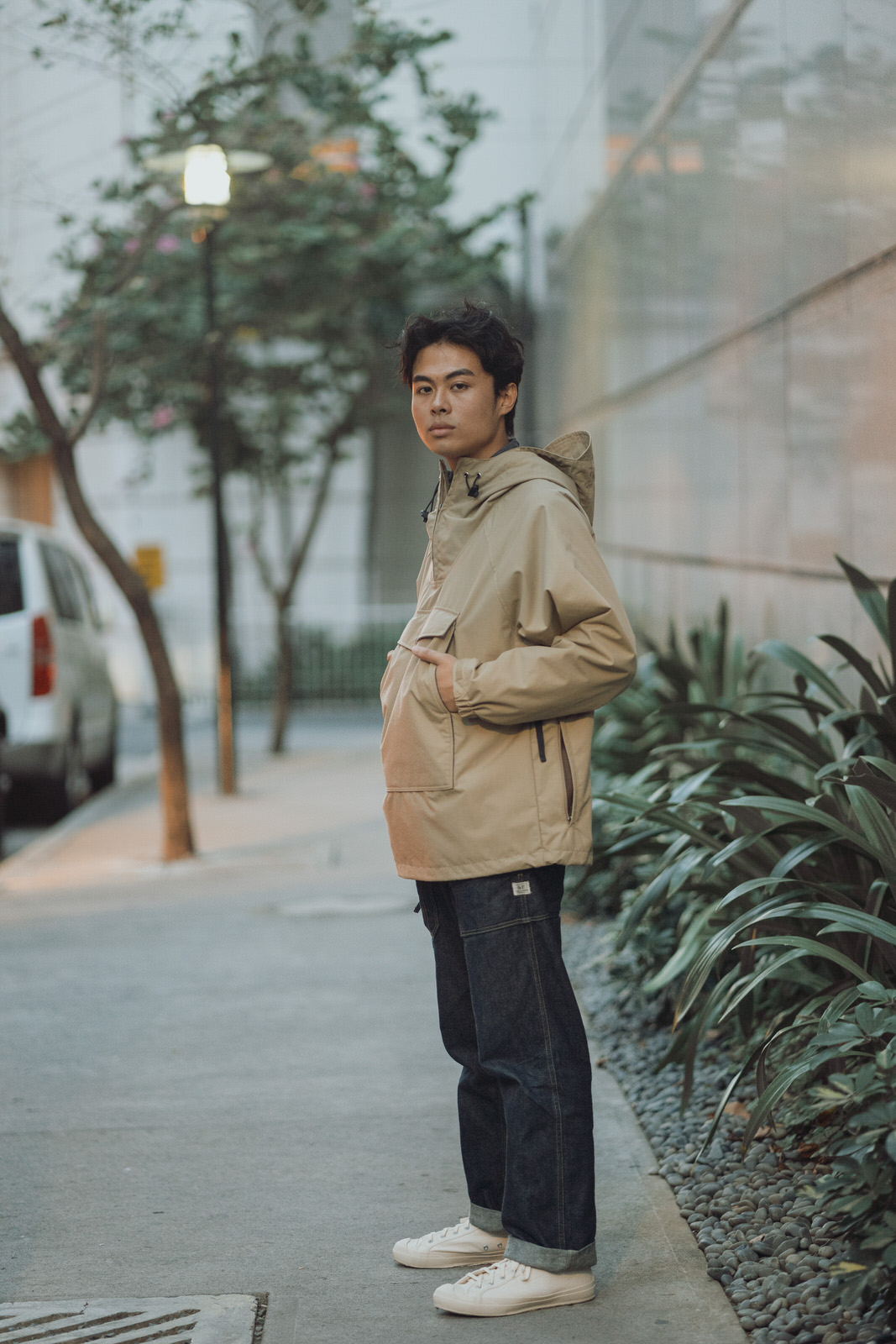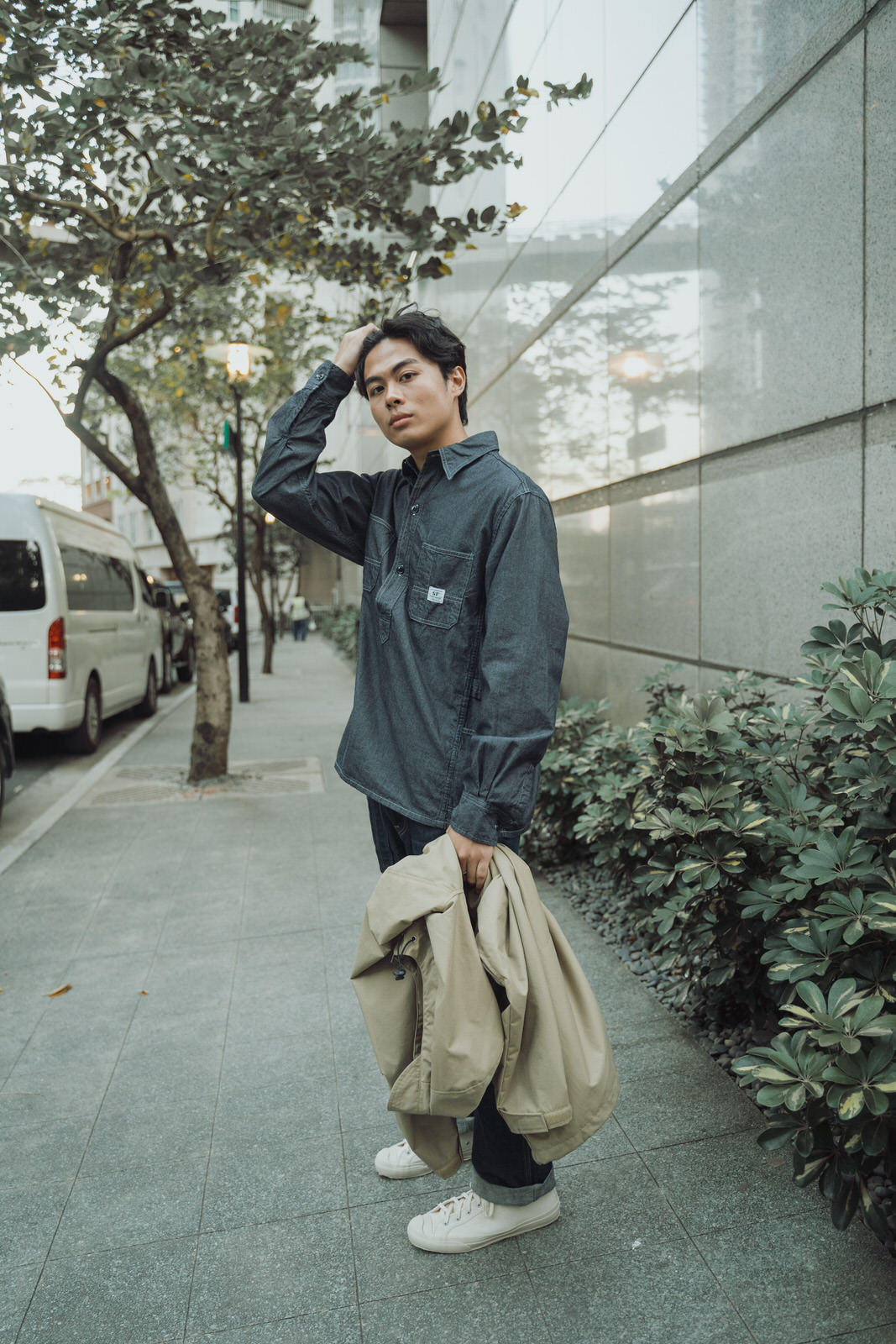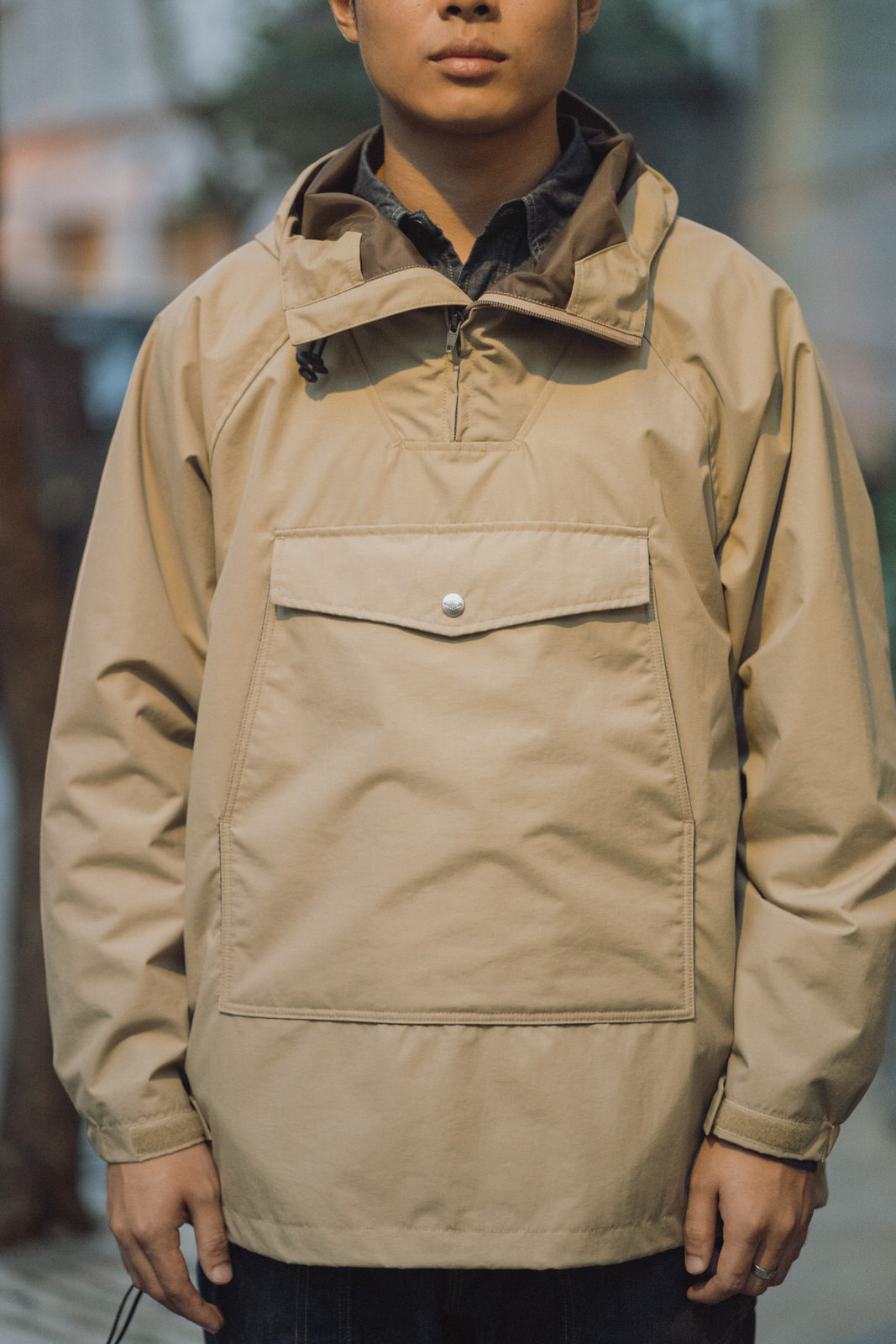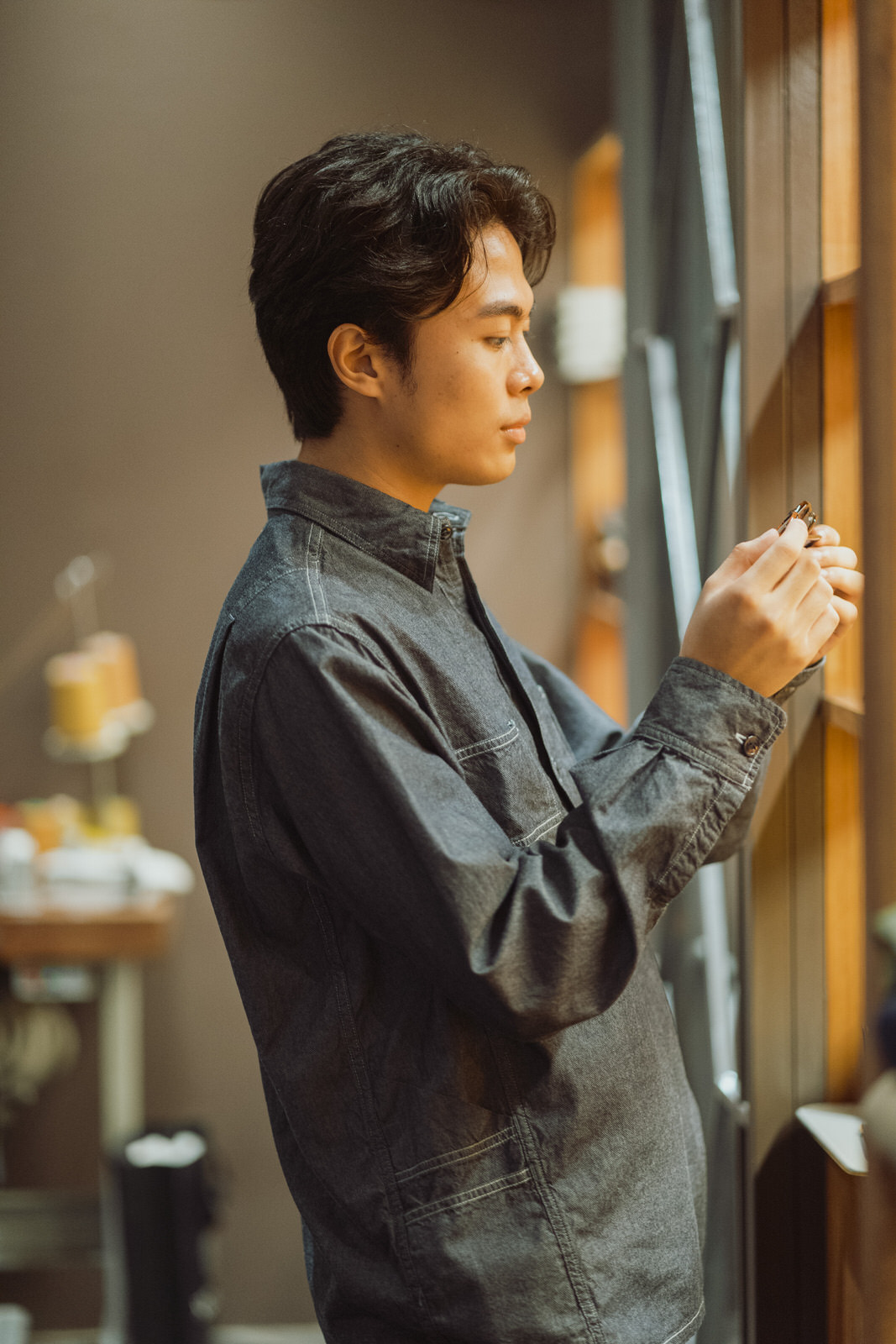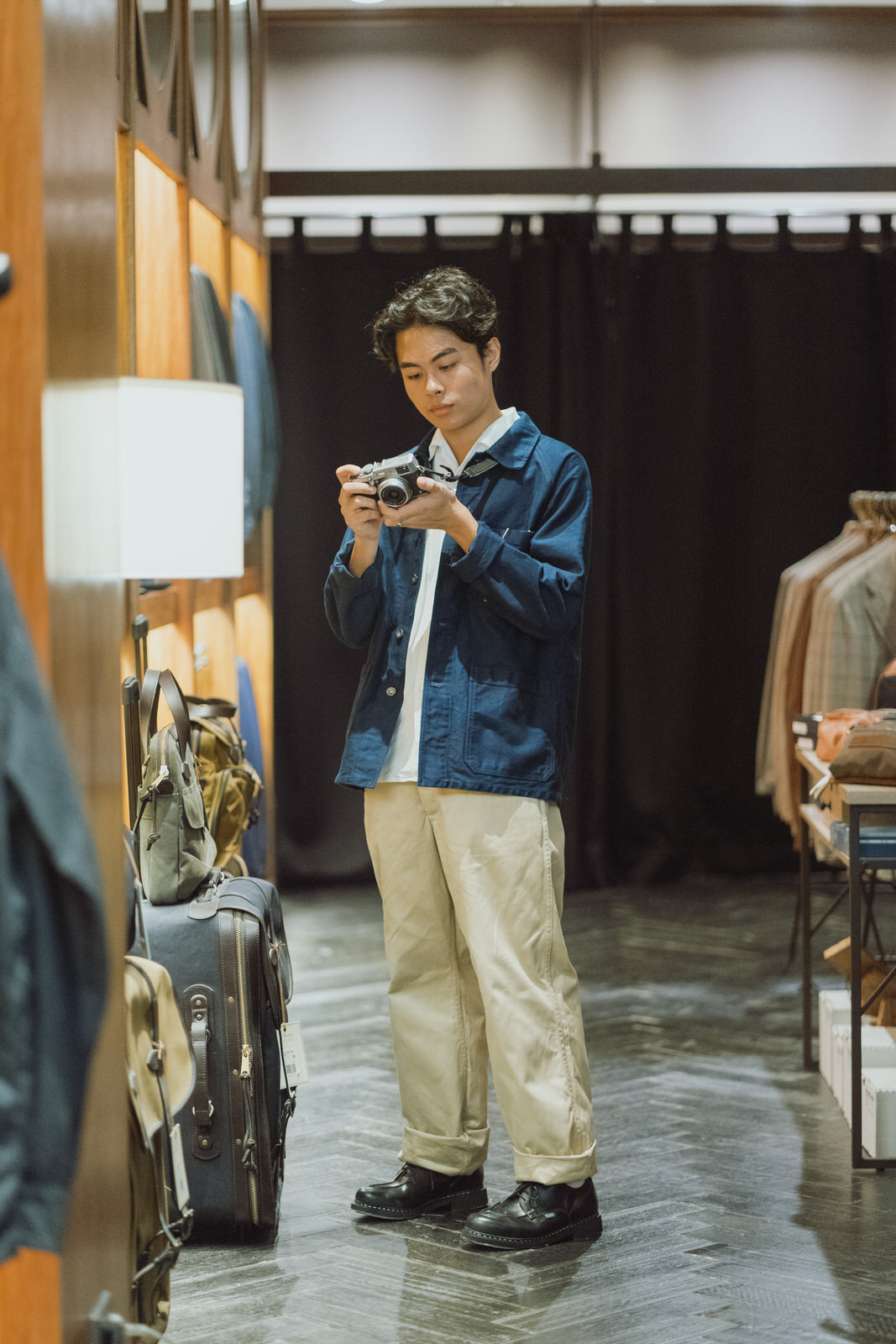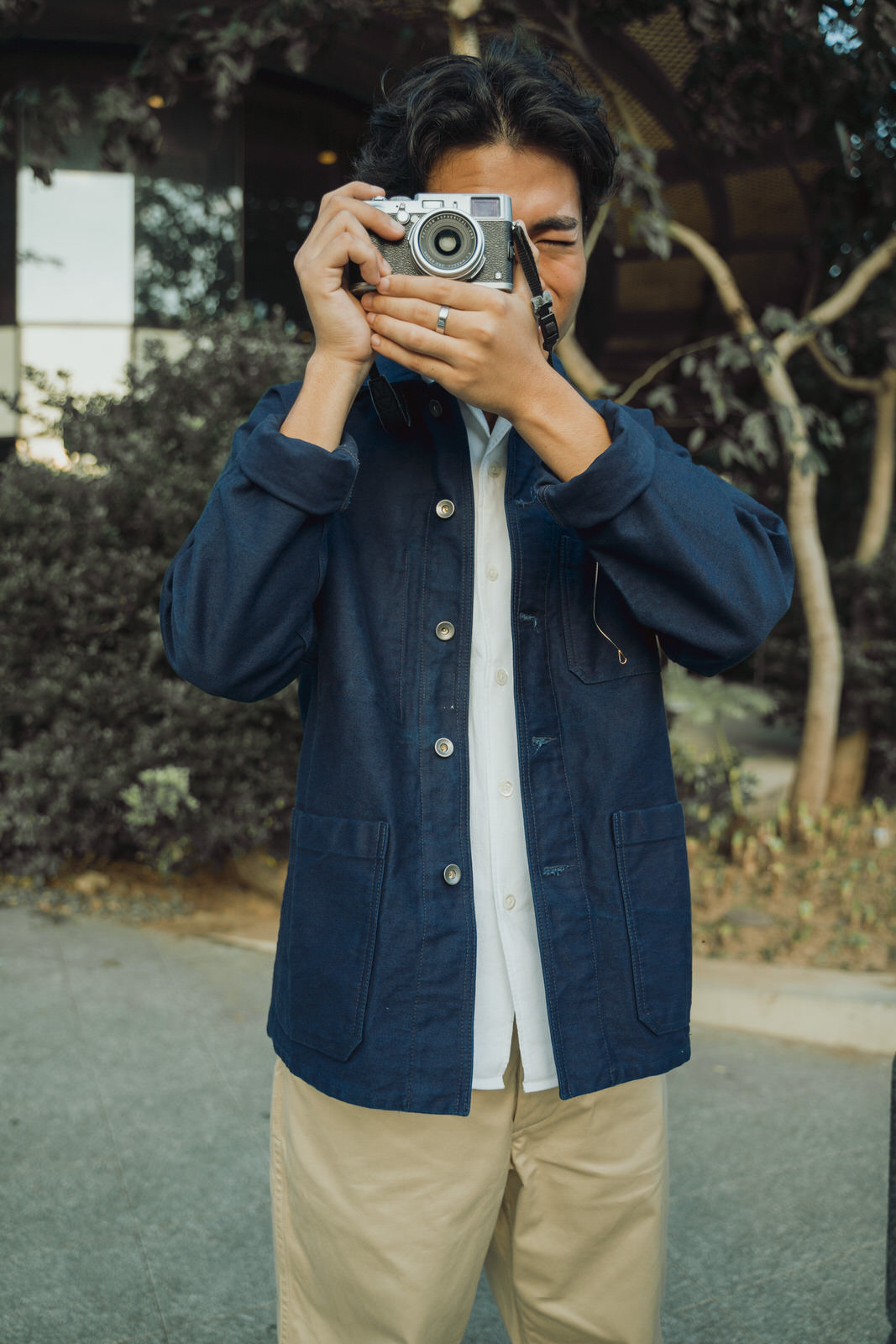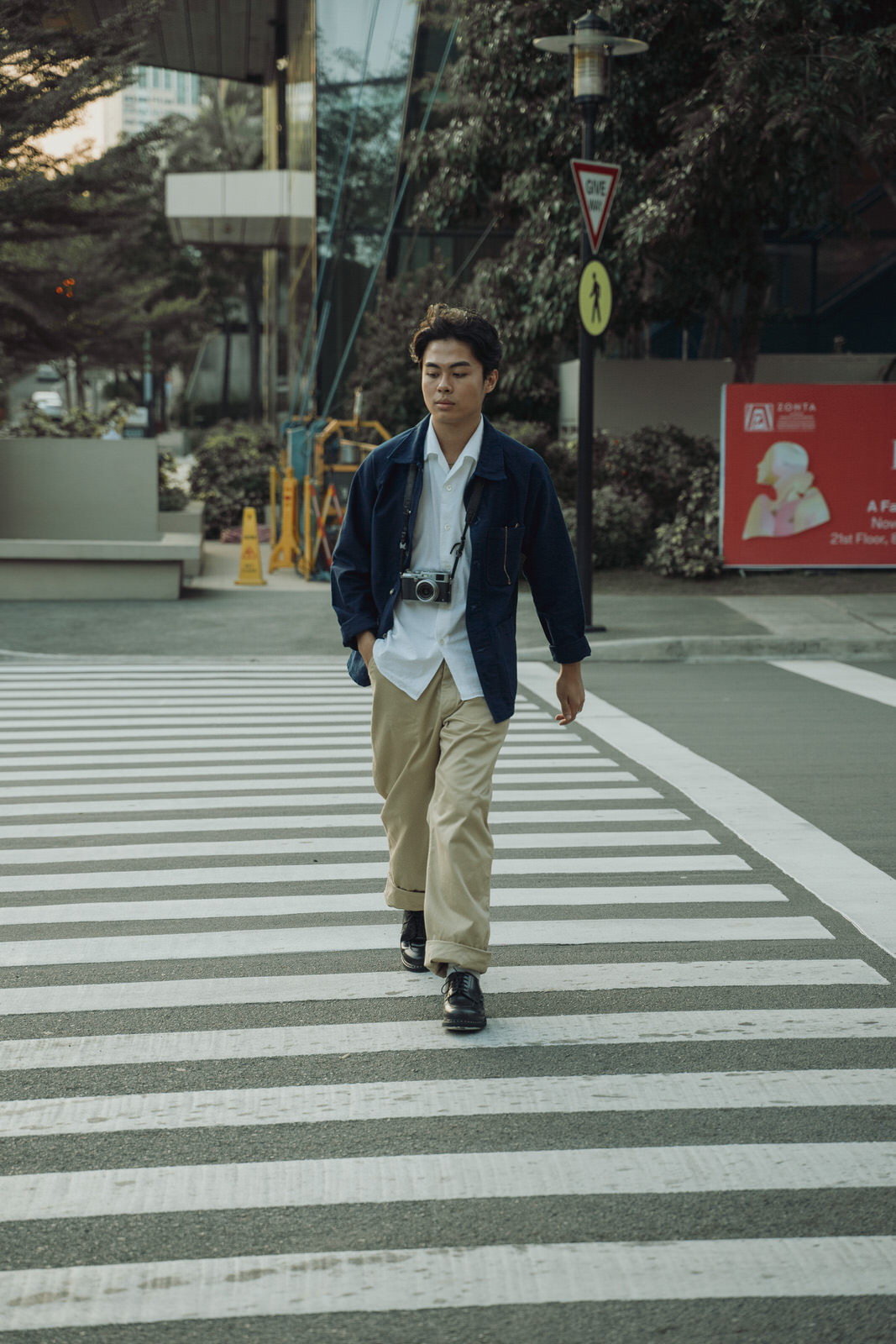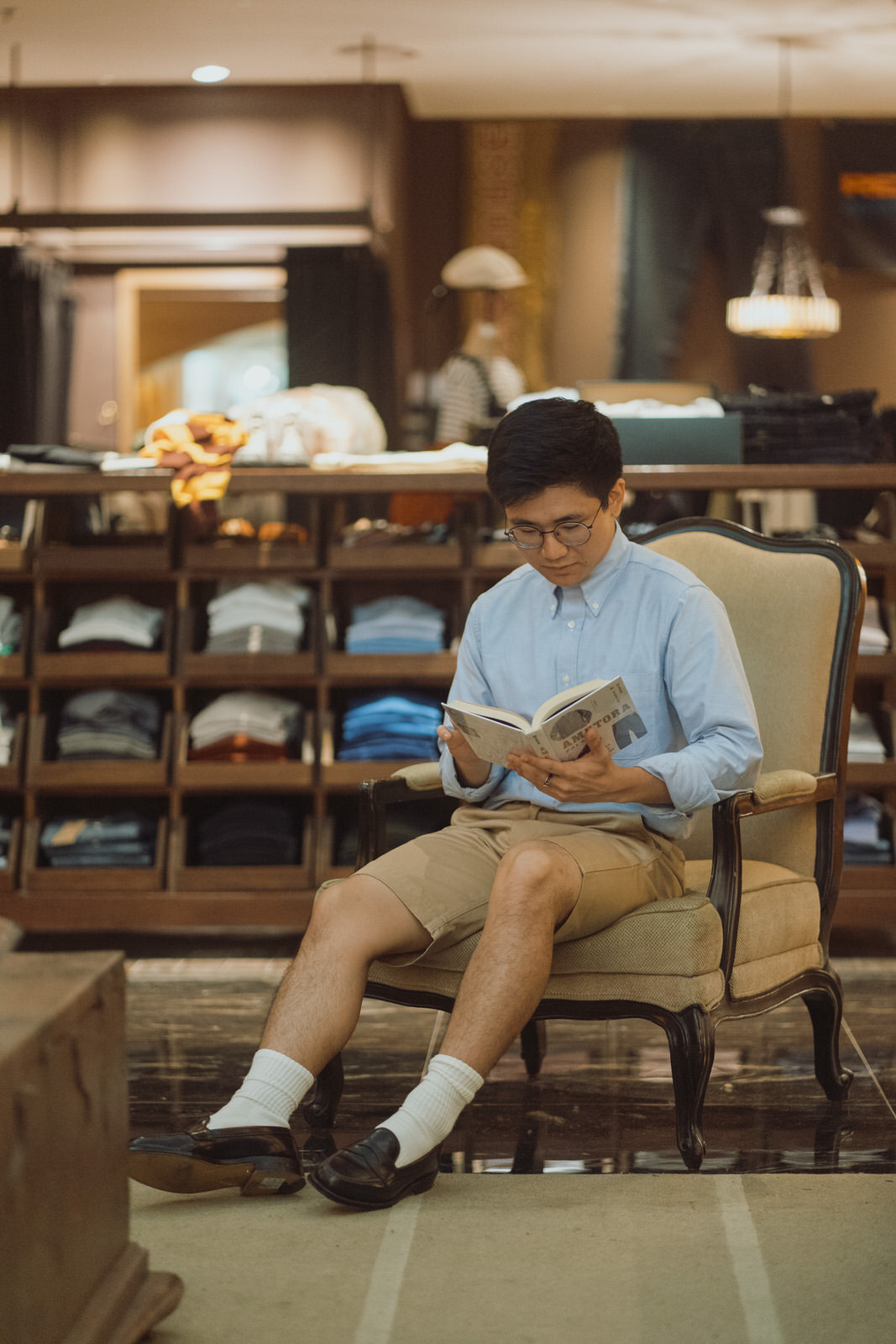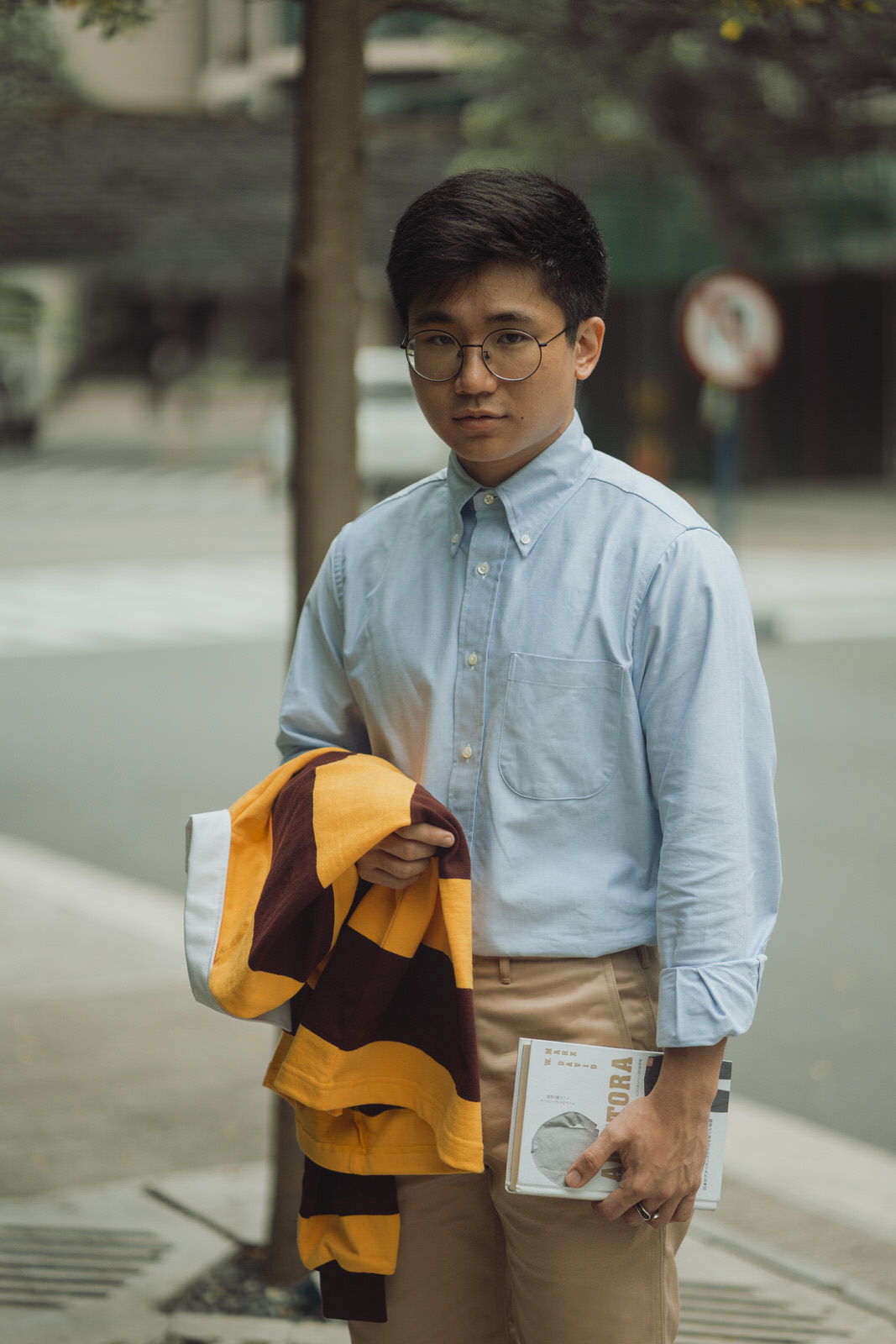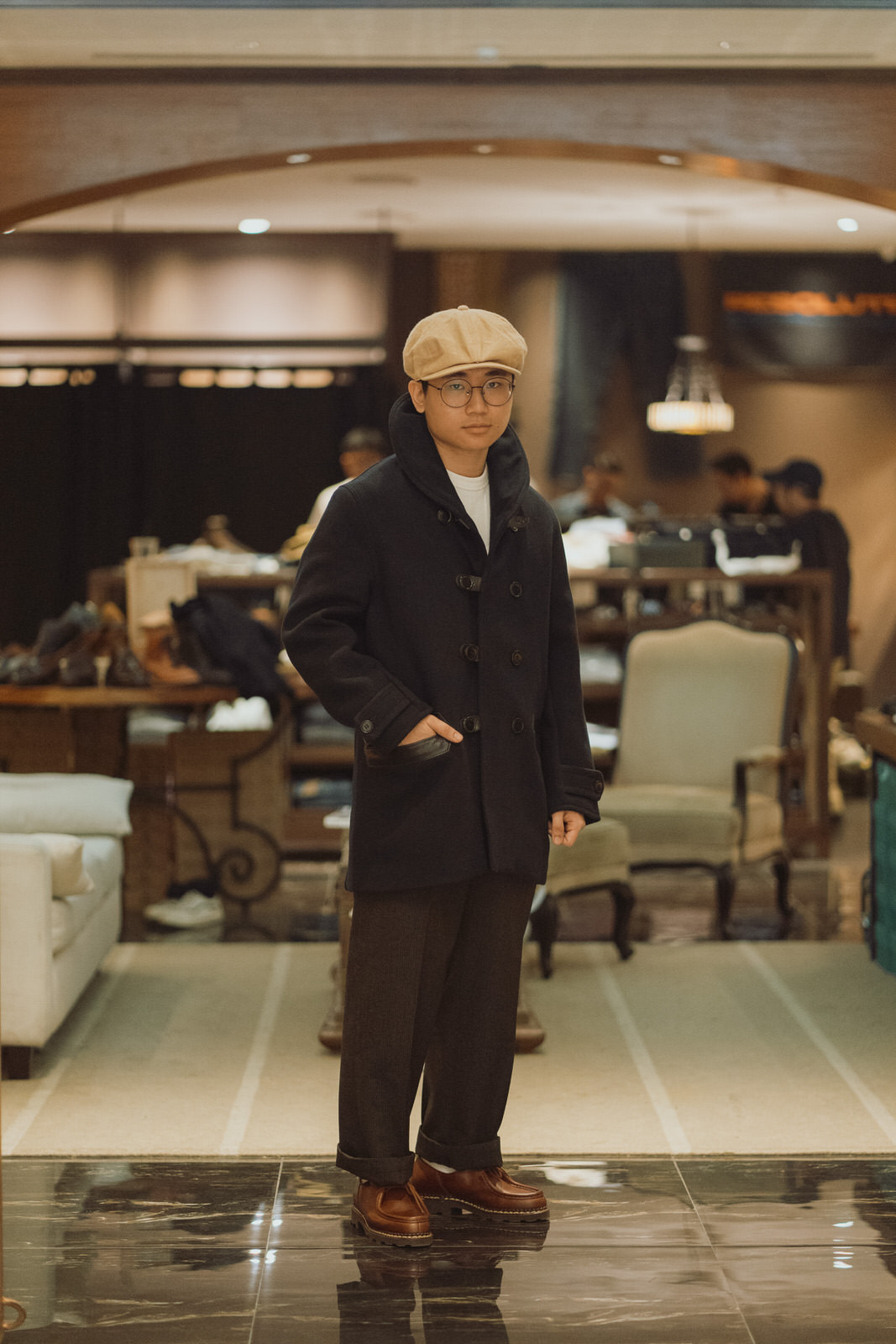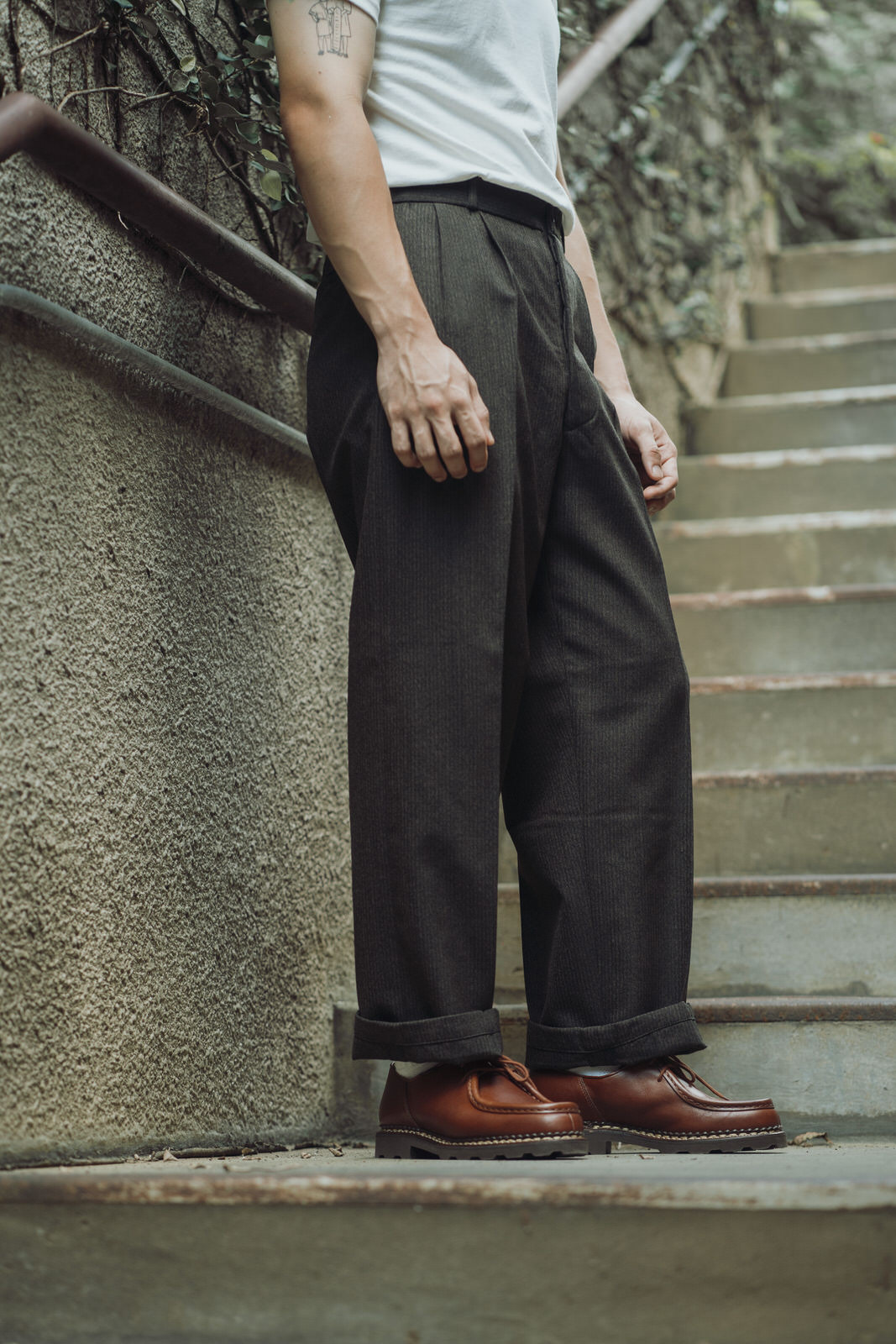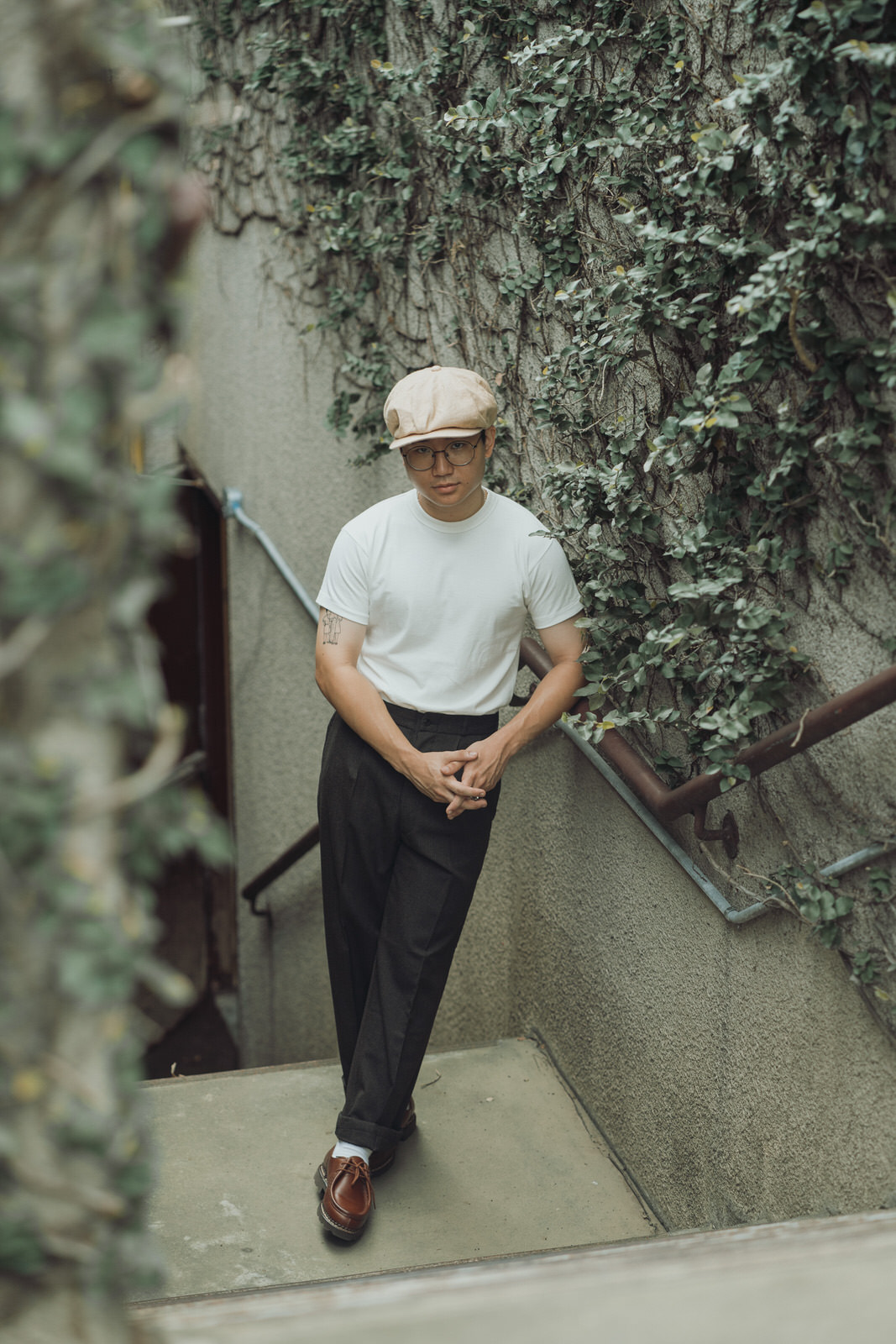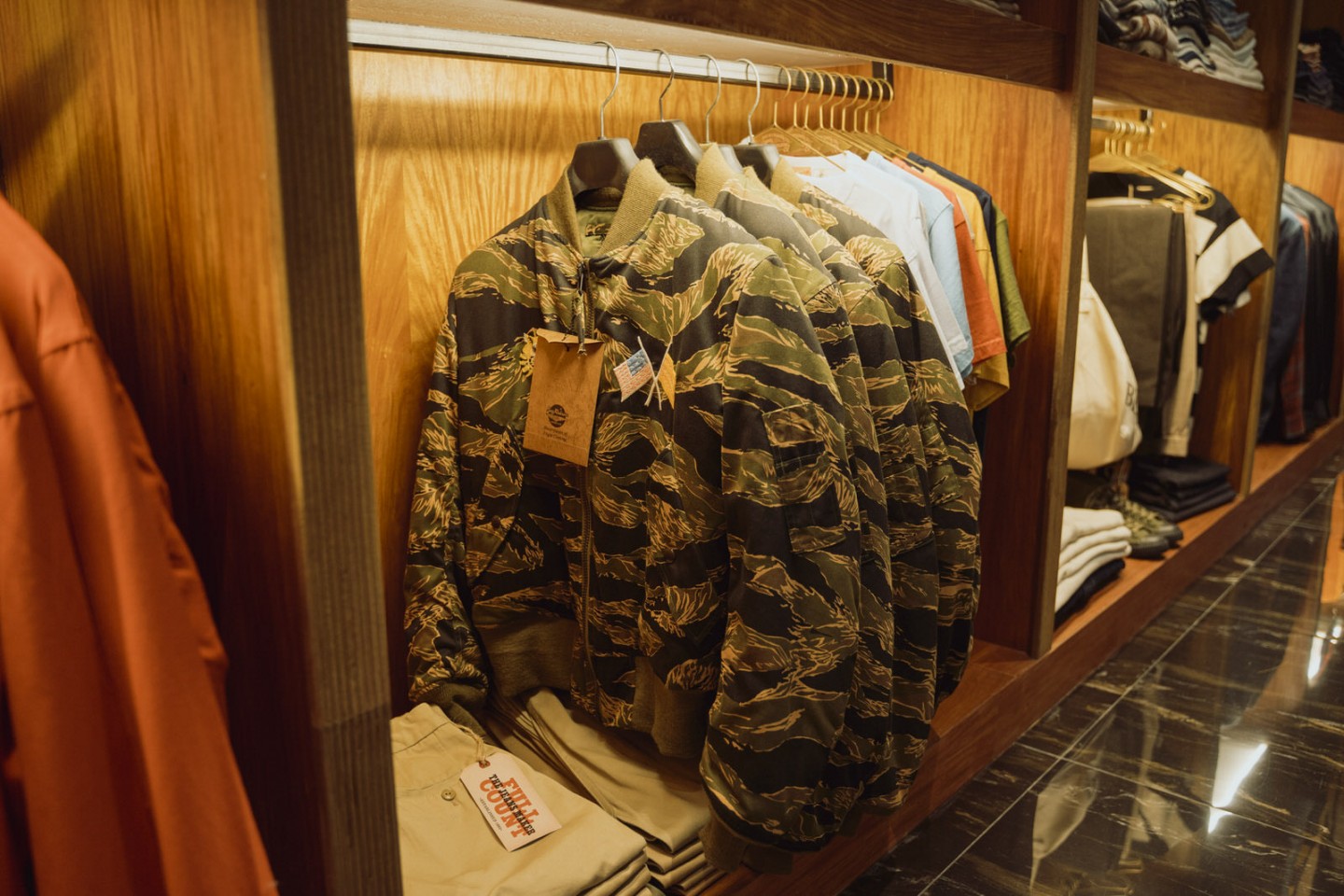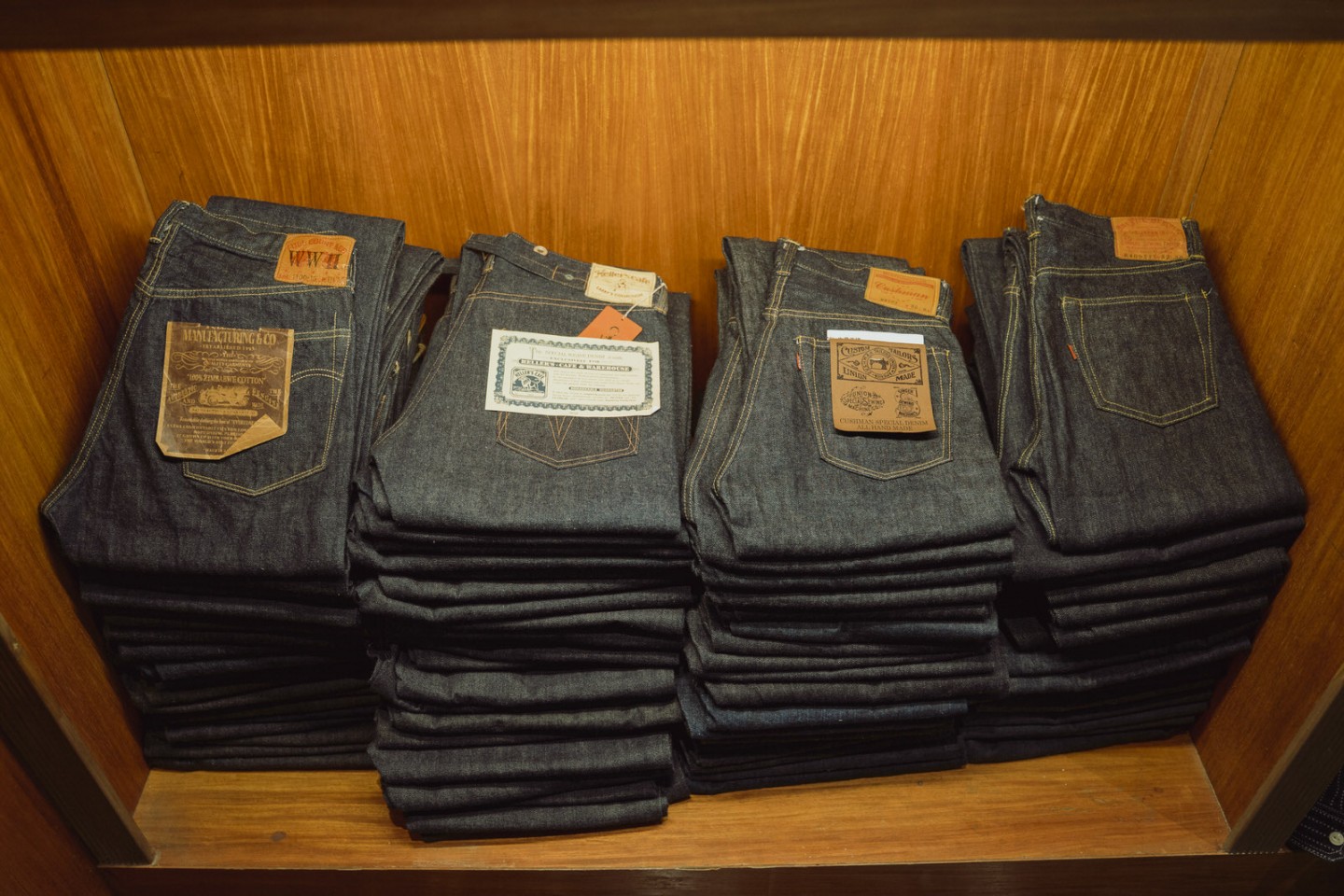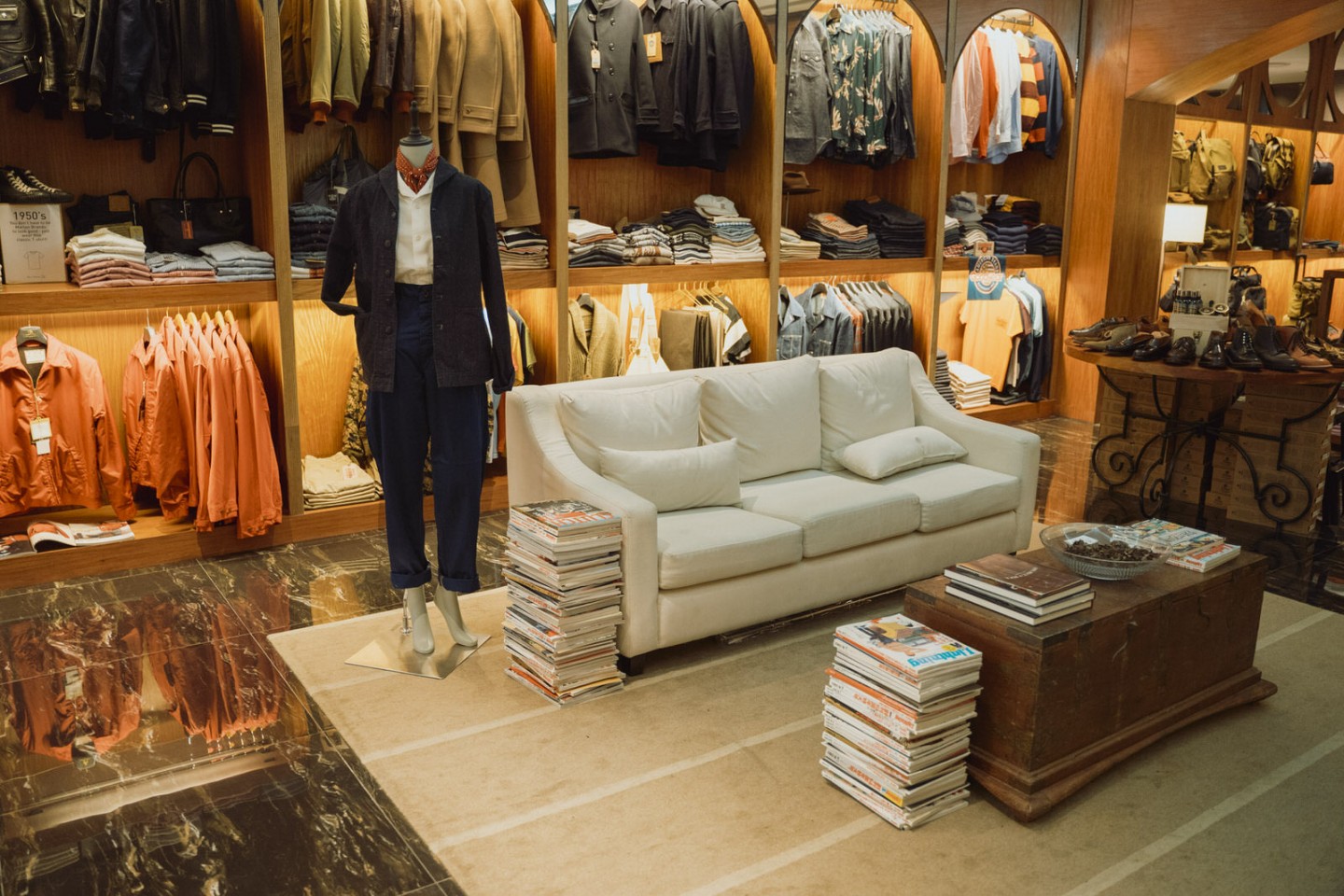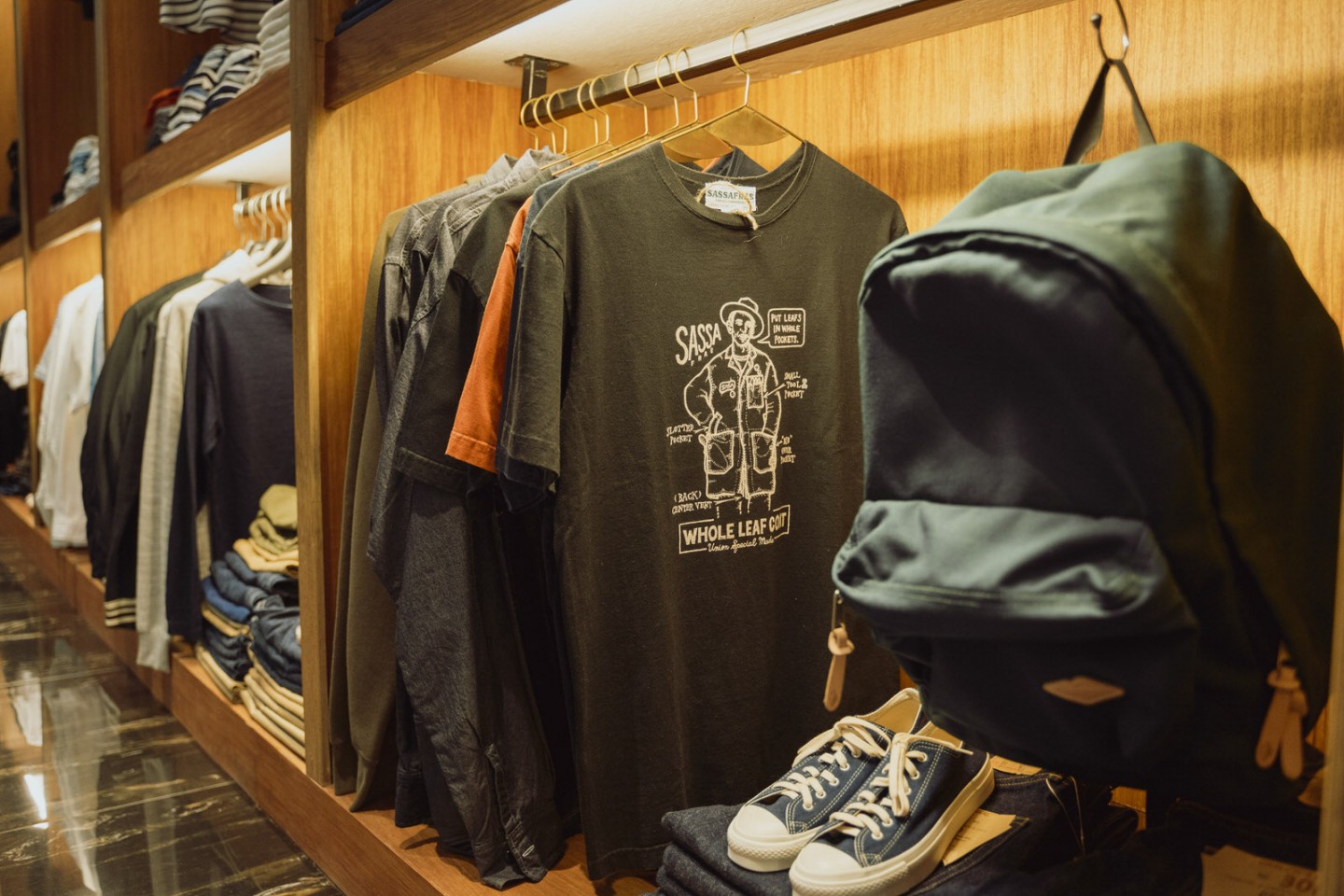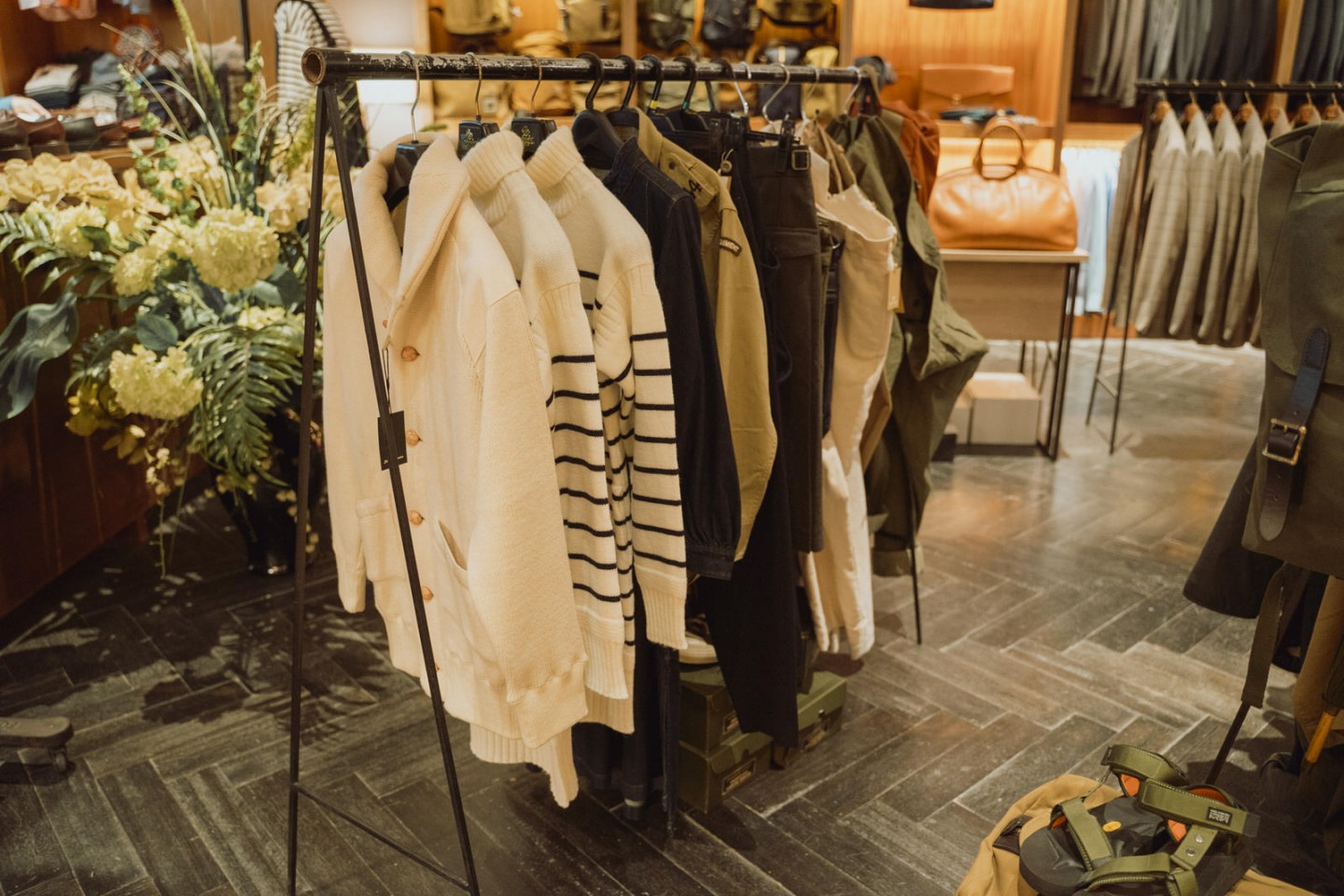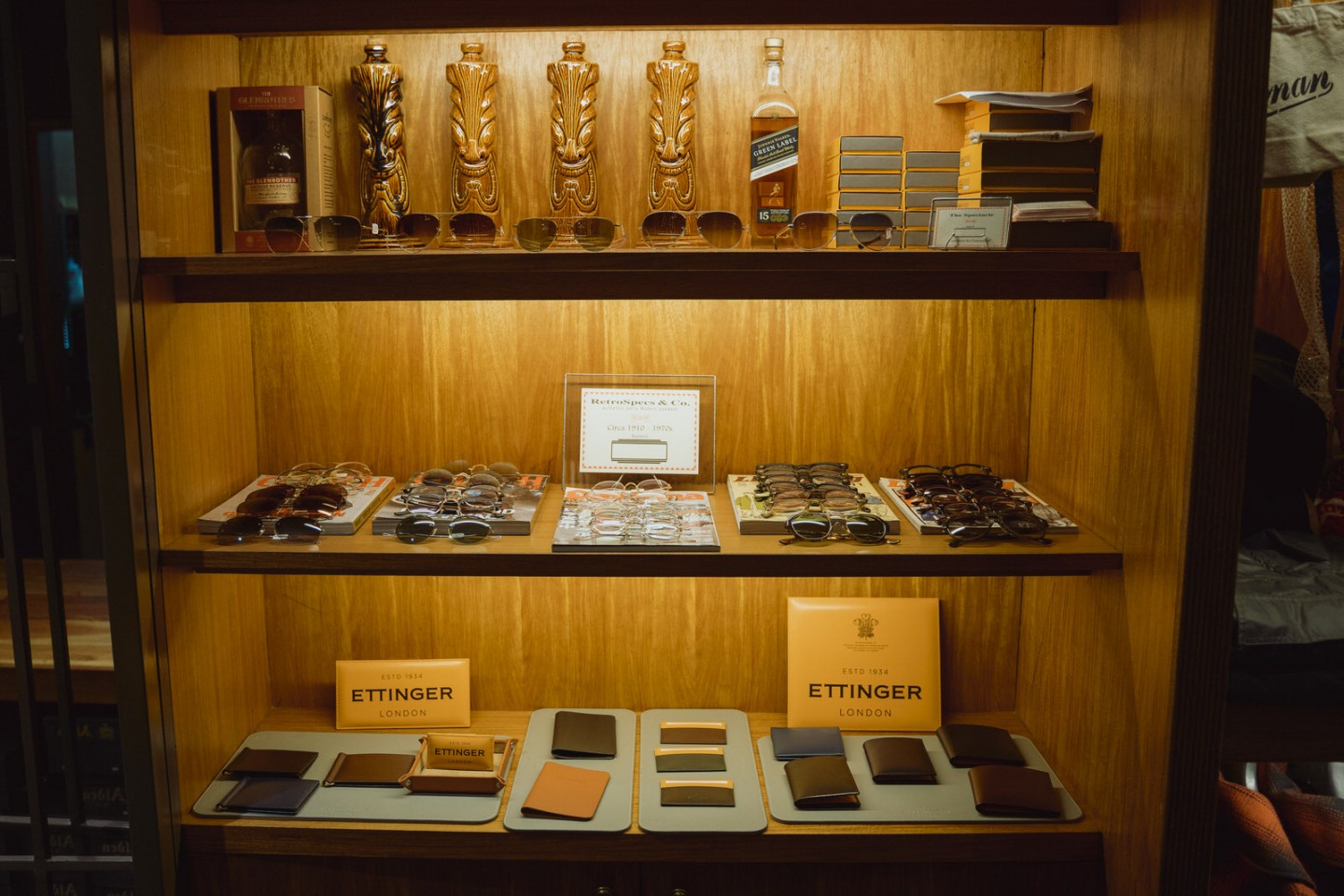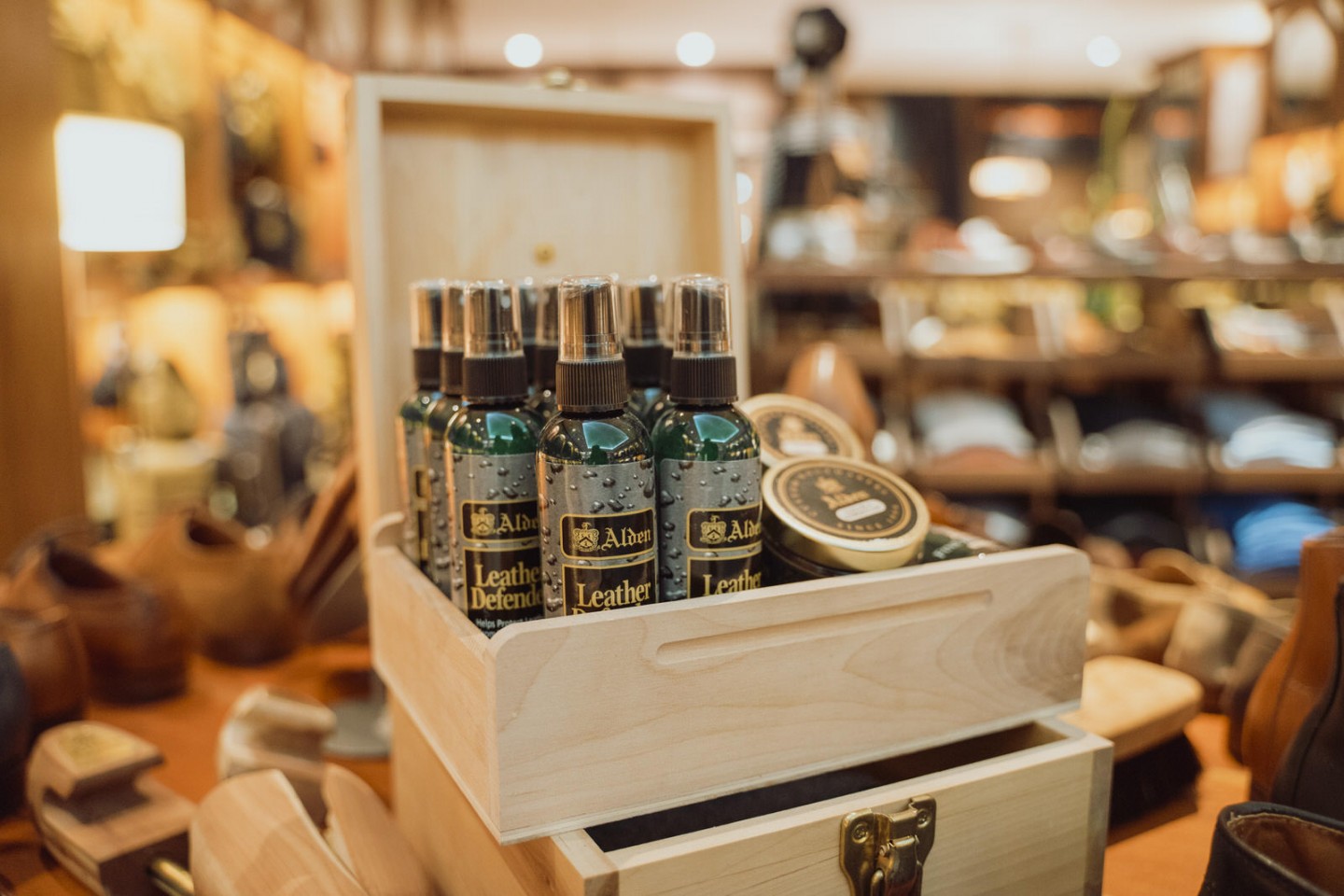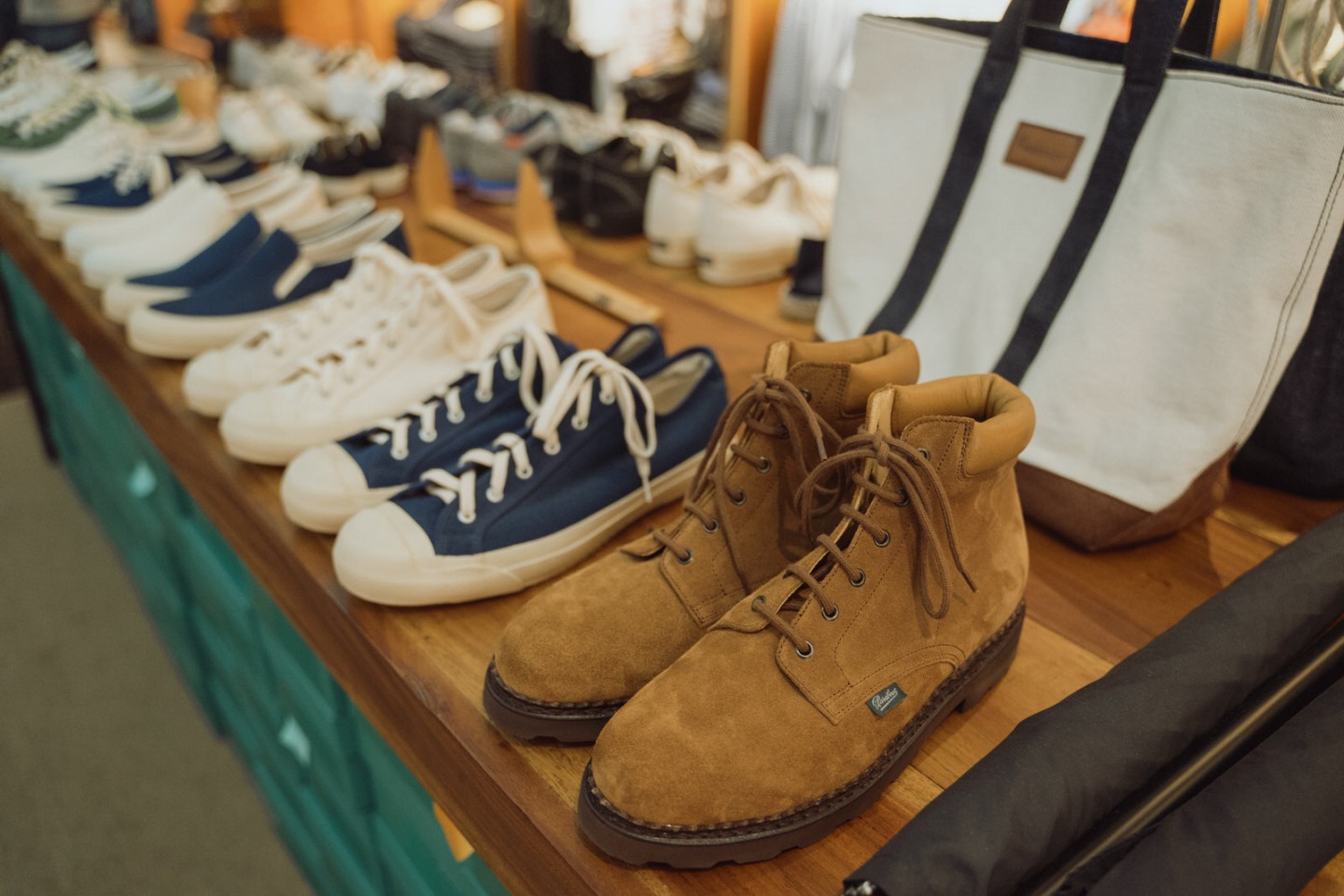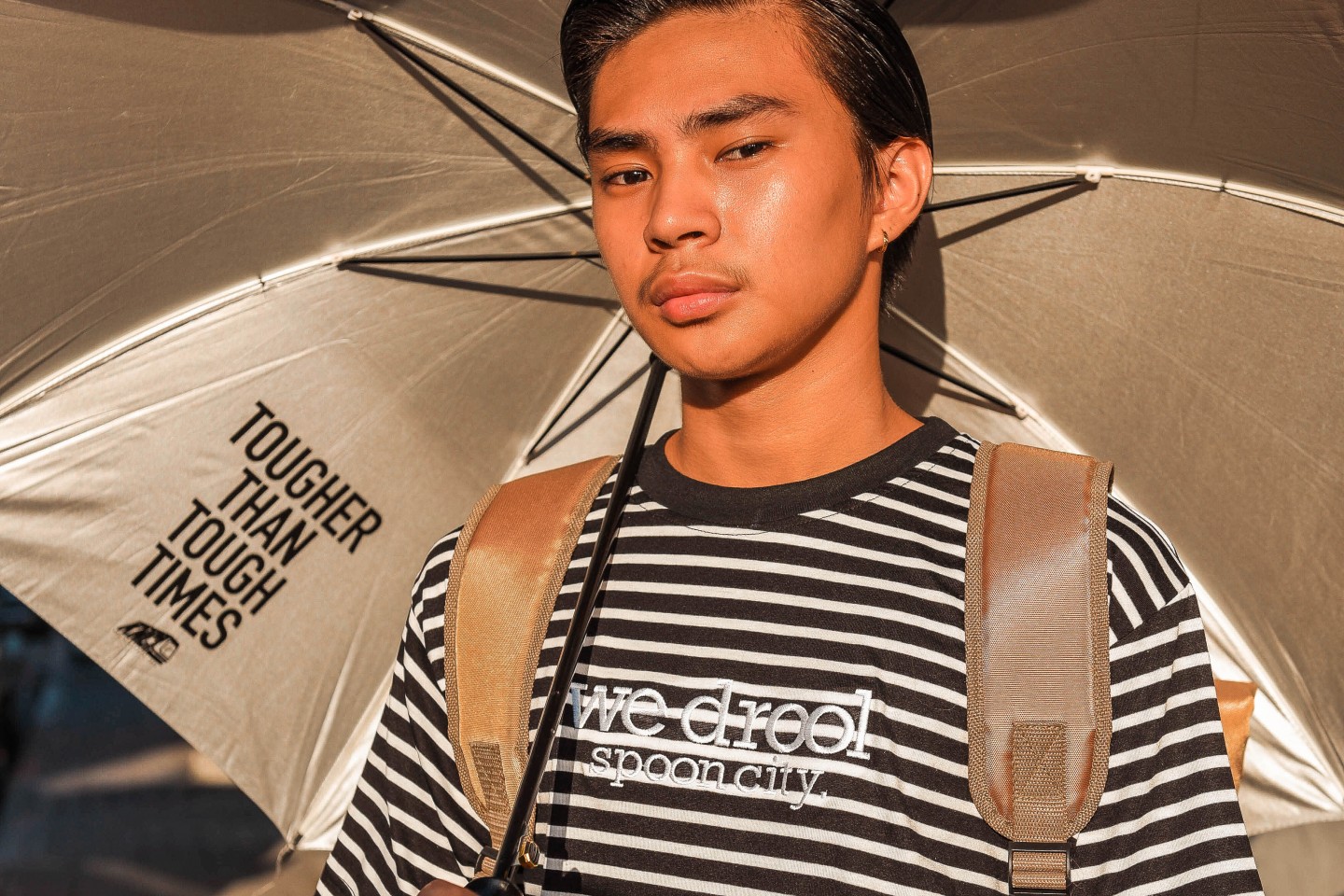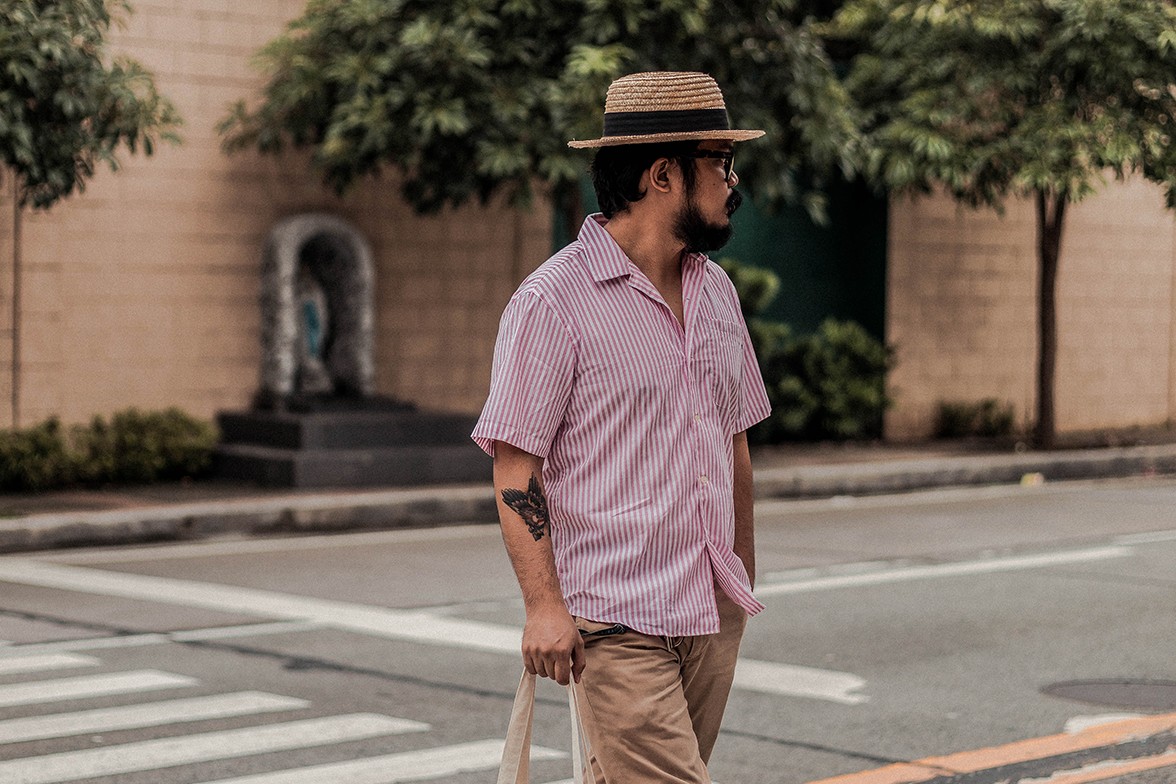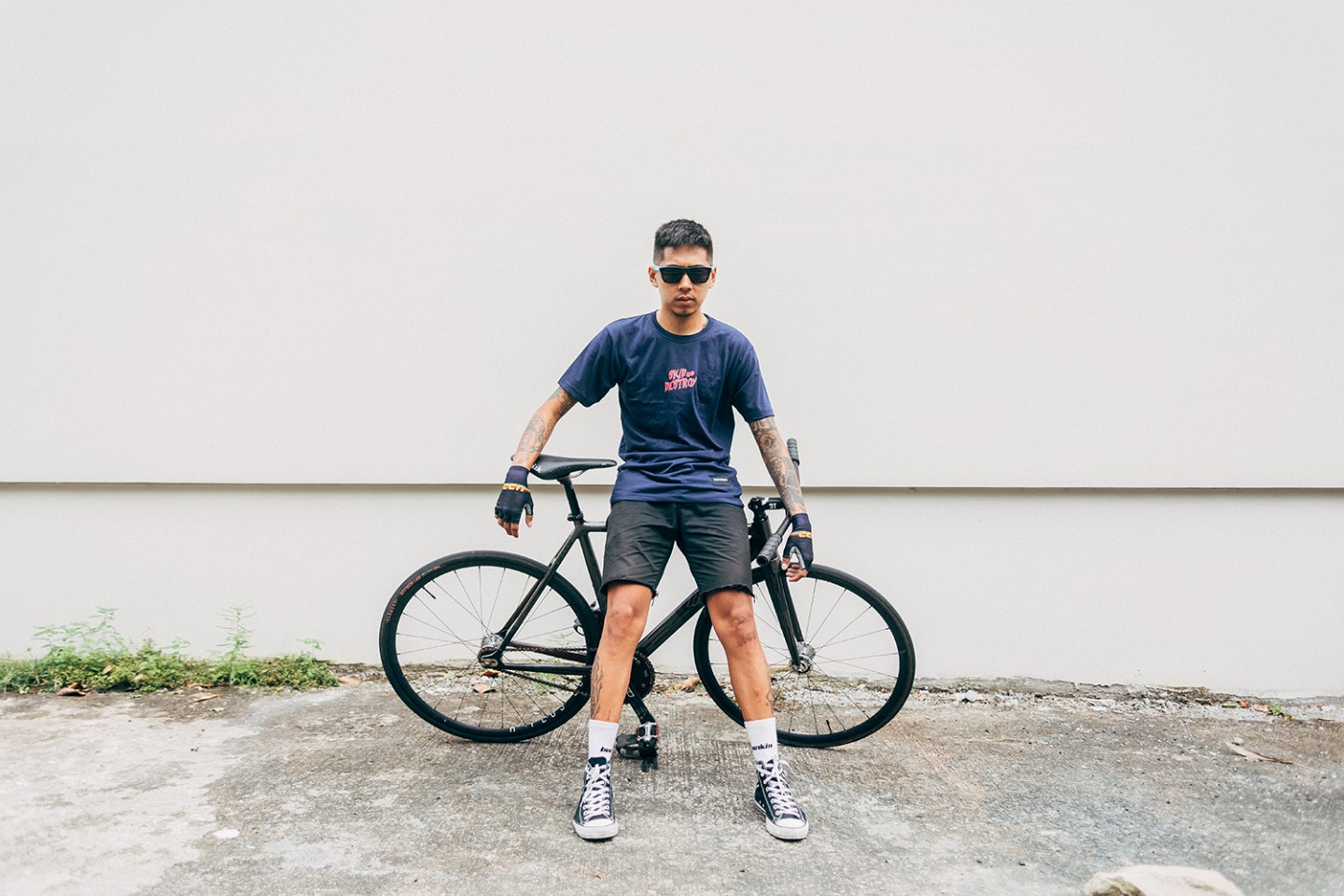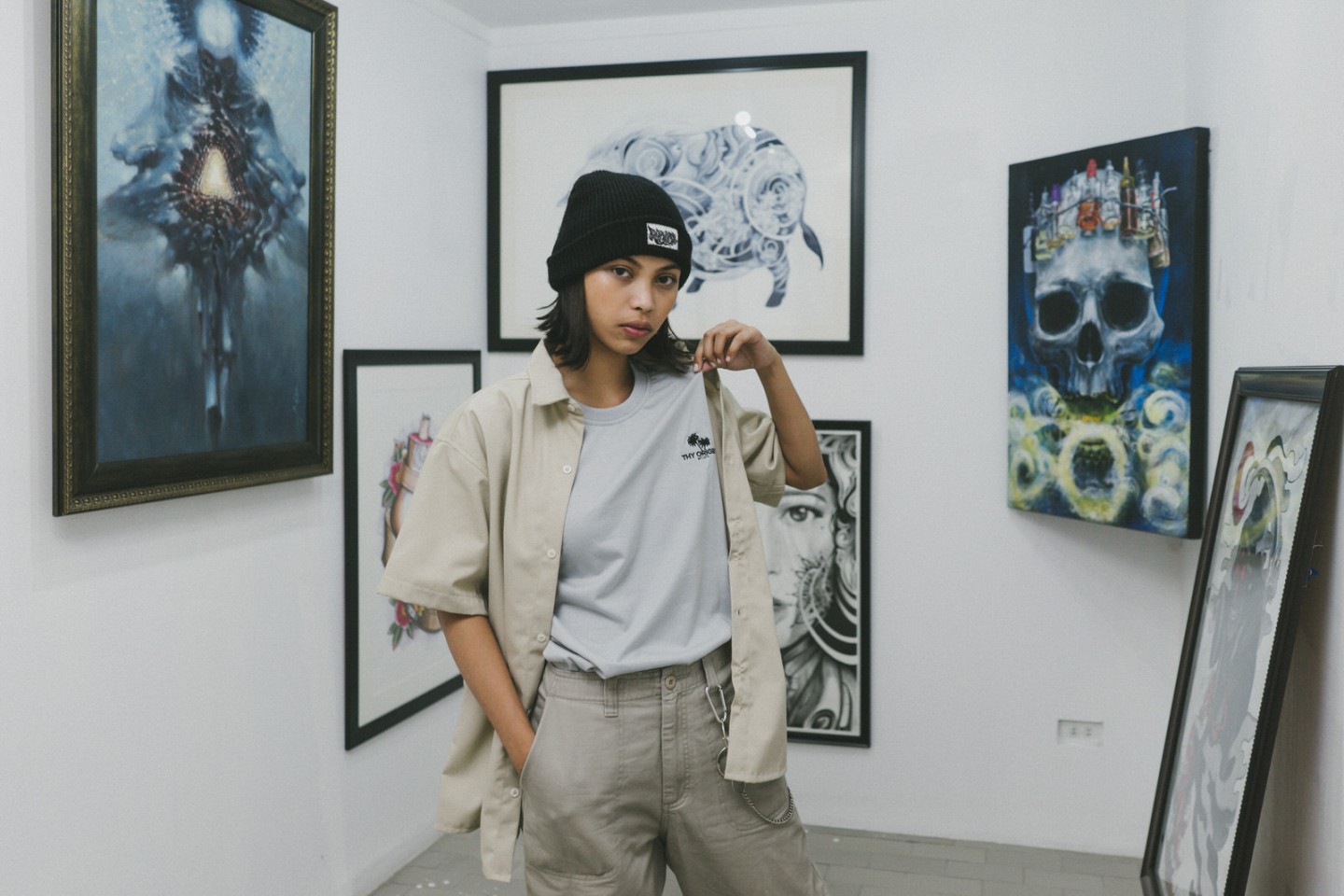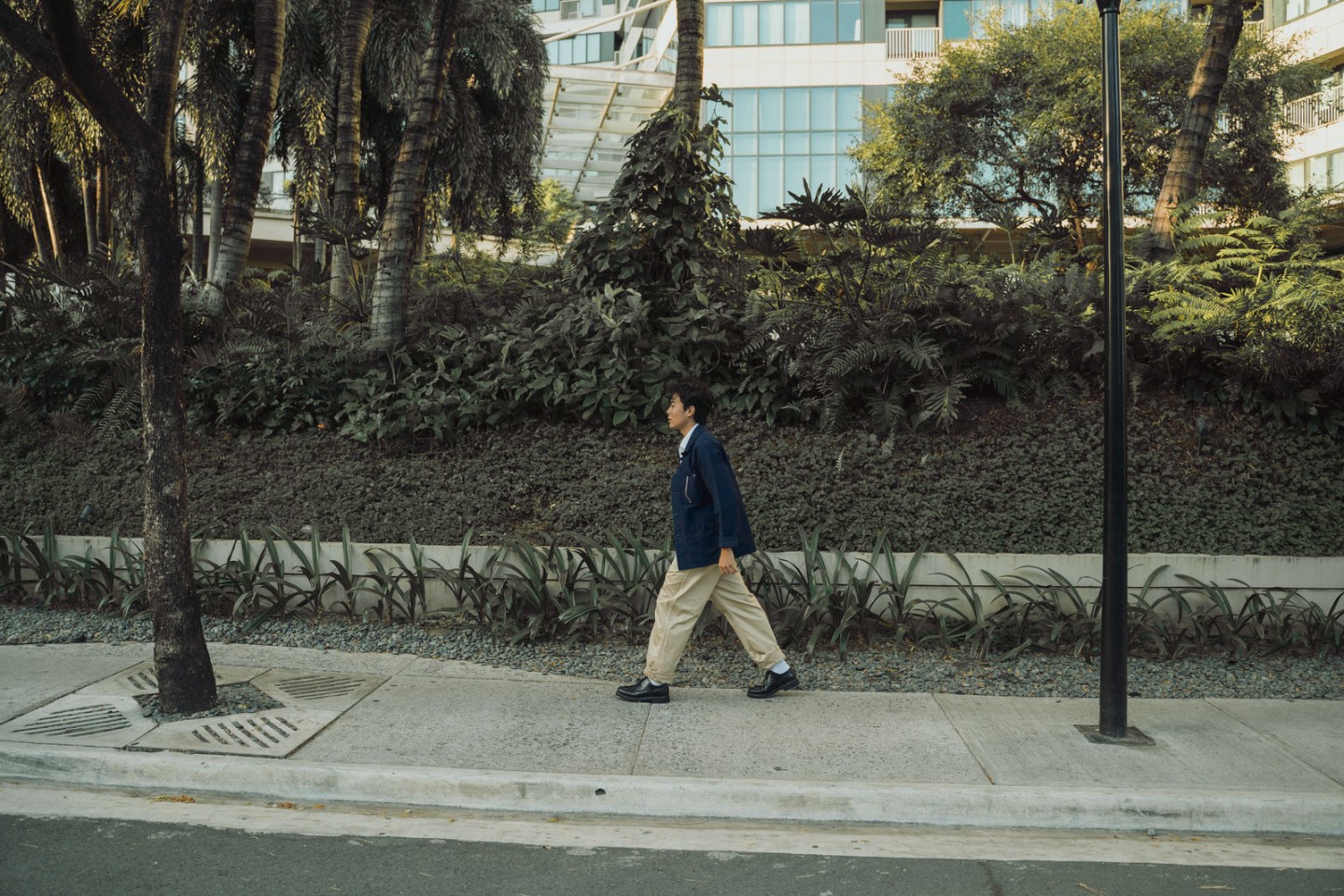
“What’s sad about the quality of clothes these days is that what used to be the standard, is now the premium,” Raphael, one of the store associates, replies when asked about his thoughts on clothing today. He’s wearing a pair of engineer boots underneath wide denim pants patterned after a pair of Levi’s 501’s from 1955. “These boots were made as protective gear for railway engineers who were in charge of shoveling hot coal to power steam engines.” Before the idea of fashion became accessible to more people, clothes were designed for a specific purpose, not a look. “Back then, form followed function,” he continued.
Located in the heart of Power Plant Mall’s extension wing is Signet, a store that specializes in premium menswear carrying over sixty ready-to-wear, made-to-measure, and bespoke brands and artisans from around the world. Upon entry, you’re greeted by a cozy living area complete with a rug and two couches instead of being confronted by the usual bevy of latest product waiting to be picked up and rushed to the register. A carefully curated selection of leather jackets, chambray shirts, and pleated trousers are casually hung around the perimeter of the store.
Displayed in the front window is a pair of Alden 405 boots with a beautiful, brown finish. “I wore these every single day for two years,” Raphael explains as he shows me the same pair of unworn boots in its original color for comparison. Over time, anything made with natural leather will start to develop a patina after exposure to sun, dirt, and other elements. This patina is what gives the boots a beautiful, dark, shiny finish that can’t be replicated. Its look changes and evolves with its owner. “It’s been through snow, floods, mud, hot days under the sun and even oil spills from working in kitchens; all part of the life of a dependable work boot.” Signet is more than a store, it’s a treasure trove of stories waiting to be told. This was the recurring theme I came across as I learned more about the clothes in the store. “These things; especially leather jackets, raw denim, or a great pair of shoes are never comfortable from day one. They’re made to conform to your body and lifestyle through years of use, becoming like a second skin to the consumer instead of just another outfit.” These aren’t just clothes you wear for a couple of months before it deteriorates or goes out of style. “When you buy products that are made well, you pay higher than usual, but you definitely get your money’s worth.”
I catch up with Bryan as he tries on a couple of Aloha shirts produced by Japanese brand Sun Surf. Most garments manufactured in Japan today, including the Aloha shirts, are patterned off actual clothing made between the 1920’s and 1960’s. And while some of the original manufacturers are still around today, it’s the Japanese who have a deep understanding of the value of heritage and tradition. This belief in perfection of craft is evident in the quality and attention to detail put into the clothes they produce. The pocket on the Aloha shirt, for example, is traditionally stitched in perfect alignment so as not to disrupt the pattern of the fabric.
Bryan’s all smiles as he jumps into a naval dungaree made by Japan-based, British designer Nigel Cabourn. He’s admired Nigel’s work for some time now and his clothes aren’t easy to come by, so seeing himself in Nigel’s pieces head to toe is a dream come true. “Over the years, I’ve narrowed down on my wardrobe. I let go of the things I don’t wear and started investing in pieces I know would age well with me,” Bryan explains as he talks about the evolution of his personal style. “I just want to be that guy who looks like he wears the same white shirt everyday with a couple of nice jackets and shoes in rotation.”
To a certain extent, the idea of curating one’s wardrobe with longevity in mind resonates with the ethos of the store. The fashion cycle is moving faster than it has before—so much so that most fast-fashion stores have a permanent sale rack with clothes that might have been cool a couple of weeks ago but are now at 50% off. The success of fast-fashion relies on how well these companies are able to design off of trends and return a quick profit. But when trends die, the clothes are shoved to the back of closets to make space for the next trend, continuing the cycle that eventually leads to waste. The rigorous process the Signet team goes through to decide what product to bring into the store ensures that whatever appears on their shelves can be worn for years. The store rarely goes on sale and it has no reason to. The clothes they bring in was good years ago, is still good now, and will continue to be good years later.
Lean Ordinario aka LONER
Lean, who goes by his stage name, LONER, is dressed in a pair of Fall Leaf Pants and a Gardener Shell Oxford from Japanese label Sassafras. While Japanese designers are known to specialize in Americana, incorporating workwear and even military details, Sassafras takes an interesting route and designs clothes with the gardener in mind. Known for their durable construction and attention to pocket detail, Sassafras is an example of how form follows function. Every detail exists for a specific function. Most of their pants feature large front pockets and hammer loops for convenient storage, and their shirts feature small holes on the yoke for better ventilation. All its functional details contribute to the overall form—and the form looks great. This isn’t to say that you shouldn’t wear the brand if you’re not capable of keeping a plant alive, but there’s value in knowing that the clothes they produce was designed from something bigger than a fleeting trend. That’s what sets these clothes apart from clothes you can find elsewhere.
Matt, another one of the store associates, tells us about how the moleskin jacket he put on Lean was patterned after garments men have been wearing in France since the beginning of the 20th century, and is still a staple in men’s wardrobes today. It’s the kind of information you can’t usually get from other stores. The guys at Signet are not just well-educated when it comes to the product, they’re obsessed. Before even putting on a garment, you would’ve probably heard almost all there is to know about the piece in your hands. This education didn’t come from required readings or a primer they had to memorize before their first day at work. The curiosity they have for the clothes and the stories that come with it is why they’re here in the first place. Working at the store is but a mere expansion of their personal lifestyle and interests.
“It’s always been more than just the clothes for us. We fell in love with the history, culture, and lifestyle through movies, books, and magazines. The clothes were just a big part of it,” Raphael says as he shows us the different cuts of denim throughout the years. Needless to say, everyone working at Signet has their personal styles down pat. And while that might seem intimidating at first, it’s reassuring to know that whoever’s guiding you through a purchase knows what’s best for you.
Edsel appears from the dressing room wearing a pair of Buzz Rickson’s Military Chino Shorts, a rugby shirt from Battenwear, and Penny Loafers from Alden—a nod to the Ivy League style movement of the 1950’s. Ivy League was the collegiate upper class take on prep, characterized by soft suits, tailored shorts, and college sweaters. “Sometimes I feel like it’s hard to dress up in this country because people aren’t very open yet,” he tells me when I ask about his thinking process getting dressed. “When I go out on a regular day dressed up just a little bit, some people already think it’s a lot of effort.” I nod in agreement before stopping to ask myself, “What’s wrong with a little effort?”
He changes into a pair of Ragtime 2Tack trousers and a Drop Needle Rib Tee, both made by Belafonte. The outfit is casual in principle, but the sophistication of the overall look comes from the great deal of thought that was put into how the clothes fit. As we slowly start moving into adulthood, the need to put effort and care into dressing for certain occasions start to arise and it’s only right that our wardrobe adapts to this change as well. Men can’t wear sneakers and sweats forever.
Hearing about how these clothes were made and the detailed thought that goes into every pleat and placket can change one’s perspective on the way they purchase clothes and even how they put them on. One could always argue that they’re just clothes. And while absolutely true, the reality is that what we choose to wear is an extension of who we are. Resolving to wear a pair of jeans and a white shirt because you might not care is still a decision—one that is indicative to who you are as a person. At the end of the day, men need to get dressed. So if a pair of denim jeans and a white shirt is what you’re going for, then you might as well do it right.
Signet is located on R1 Level, Power Plant Mall, Rockwell Center, Makati
Photography — Zaldine Alvaro
Styling — Xeena Morales
Sittings — Tricia Quintero
Location — Power Plant Mall, Rockwell Center

